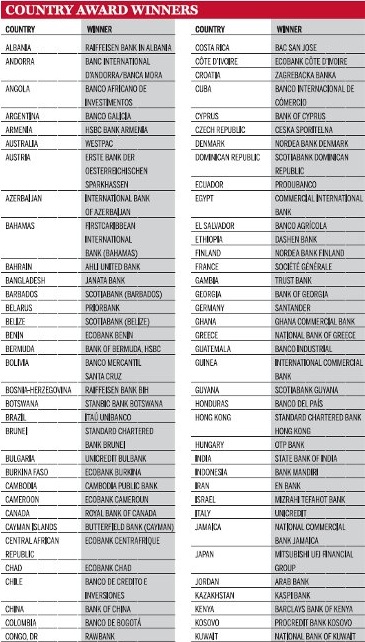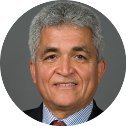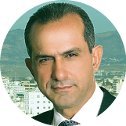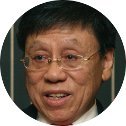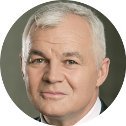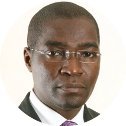The Banker Awards 2009 - Country Winners
|
|
|
|
|
The Banker's panel of judges salutes the best banks in 144 different countries based on their performances over the past year.
Oliver Whittle, CEO, Raiffeisen Bank in Albania
Albania
Raiffeisen Bank in Albania
Albanians know a thing or two about financial crises, with the 1997 collapse of nationwide pyramid investment scams still fresh in the memory. But those pyramid schemes were unregulated - a crisis among regulated banks was a worrying new experience, says Oliver Whittle, Raiffeisen Bank's CEO in Albania.
"Our challenge last year was to reassure the public and our customers about the strength of the banking system, and Raiffeisen in particular, while at the same time reducing the fear of the unknown. We achieved this through our reputation in Albania, the strength of our parent company Raiffeisen International, and our liquidity advantage - having a low loan-to-deposit ratio," says Mr Whittle.
The 2008 figures testify to the bank's success in a difficult environment. Tier 1 capital was raised by 38%, ensuring a strong financial base, and assets were up 5%, with the bank staying in profit.
One of the few European economies expected to grow in 2009, Albania provides Raiffeisen with a context that favours expansion into new market segments. In 2008, the bank launched a dedicated microfinance business to service the 95% of companies in the country that fall into this category, deploying 21 account managers across 19 regions, with the sales force set to hit 50 by the end of 2009.
"We remain optimistic for next year. Albania is still showing positive growth and we will maintain our leading position by continuing to lend actively to good businesses and salaried individuals, developing our private pension business and launching internet banking," says Mr Whittle.
Joan Quera, CEO, BIBM
Andorra
Banc International d'Andorra/Banca Mora
Banc International d'Andorra/Banca Mora (BIBM Group) may not be the biggest bank in Andorra, but its growth story and ambitious plans make for a compelling story. A key part of its growth strategy is centred on expanding its private banking business, targeting strategic markets outside of Andorra with the acquisition of Mora Wealth Management in Zurich in December 2008 and then PRS Latam in Miami in July this year. These and other initiatives have helped BIBM to maintain significant momentum in a difficult year - growing Tier 1 capital by 4.5%, boosting assets by 15.9%, and keeping return on equity to a high 21.8%.
BIBM has continued to drive efficiency, increase cross-selling and improve service levels. It has progressively segmented client groups to better tailor products and services, and this year has reaped the benefits of the introduction of Nominactiva, aimed at the mass retail segment, which was rolled out in July 2008. Since the launch of the related Activa credit/debit card - which offers discounts in shops, monthly prize draws and special credit conditions - the bank has captured 14.3% market share after just one year, and has increased its credit/debit card turnover in shops and ATMs by 10%.
"This last year has been a very challenging one for Banc International/Banca Mora Group," says Joan Quera, CEO at BIBM. "We successfully launched our international expansion in Zurich and Miami. At the same time, we have managed to consolidate our competitive position in the Andorran market, developing initiatives focused on the needs of our customers, while presenting the soundest ratios and outperforming our competitors. All of this will enable us to continue introducing strong international projects next year. This has been made possible by our employees and our customers."
Angola
Banco Africano de Investimentos
The global economic downturn finally hit Angola's oil-dependent economy in late 2008. As the price of oil plummeted so Angola's economy faltered and banks were forced to accept a harsher financial climate in which to operate. Having grown used to consecutive years of gross domestic product (GDP) growth hitting the 20% a year mark, Angola's banks are bracing themselves for a period of more constrained economic activity. The Angolan government recently halved its GDP growth forecast for 2009 from 11.8% to 6.2%. As a result of the slowdown, the country's central bank doubled the capital reserve requirement of the banks to 30% and imposed strict limits on the amount of dollars it sold at public auctions.
One bank that has managed to keep its head well above water is Banco Africano de Investimentos (BAI). The bank made net profits of $166m in the year to end 2008, an impressive 112% increase on the previous corresponding period. It boosted its Tier 1 capital by 133% to $514m and return on equity came in at a healthy 32% for 2008. The bank has invested conservatively in short-term, low-risk but high-return public debt instruments in local currency. Angolan treasury bills offer a yield of 15%, well above international benchmarks. The bank also increased its loan portfolio by 168% between December 2009 and May 2009, while at the same time keeping its non-performing loan ratio at a stable 2%.
The Banker's judges were also impressed by the BAI's continued efforts to innovate, particularly in the light of the more tricky economic conditions. Over the past 12 months, BAI has introduced SMS banking services to its clients, opened more branches and made attempts to harness small and medium-sized businesses that have traditionally struggled to gain access to credit in one of the world's least developed nations.
Daniel Llambías, chief executive, Banco Galicia
Argentina
Banco Galicia
There is nothing better than a turnaround story in a year afflicted by the worst financial crash of recent times. Banco Galicia was badly damaged by the 2001-02 Argentine crisis and suffered heavy losses as a consequence. The bank eventually turned to profit in 2007 and gained growth momentum last year, making more than 195m pesos ($51m) in net profits, a 542% increase from the previous year's results.
The repurchase of dollar-denominated debt and a cost-control programme contributed to increased shareholder returns, with return on equity jumping from just over 2% in 2007 to 10.5% last year. Efficiency ratios also improved thanks to a better assets and liabilities structure. The bank's total deposits raised in the country grew by 17.5% year on year to 15,121m pesos.
"The experience we have gained with our past domestic financial crises helped us to successfully overcome the international turmoil of 2008 and the beginning of 2009," says chief executive Daniel Llambías. "Our priority was to keep liquidity high, without neglecting our strategy focused on deepening the relations with our customers. We were extremely prudent on risk management and focused on cost containment, maintaining emphasis on corporate and social responsibility."
Furthermore, the acquisition on AIG's consumer finance business in the country has strengthened the opportunities for future growth. The $44m deal saw Banco Galicia buying 80% of the business, the remainder being purchased by an investment group led by Grupo Pegasus, and includes personal loans for about 1 million customers by Compania Financiera Argentina, part of AIG's local activities. CFA is a leading provider of personal loans in Argentina, with 93 branches and distribution agreements with more than 3900 retailers. The bank is the fourth locally owned lender by Tier 1 capital.
Tim Slater, CEO, HSBC Bank Armenia
Armenia
HSBC Bank Armenia
Heavy reliance on overseas remittances means the global economic downturn has taken its toll on Armenia, and the economy is expected to contract by 14% in 2009. In this context, HSBC Bank Armenia is weathering the storm remarkably well, after a 17.6% growth in profits in 2008.
"Despite the challenging environment, HSBC Armenia expects to be profitable in 2009 and will maintain its financial strength in terms of capital and liquidity," says CEO Tim Slater.
Assets also rose, by 16.9% in 2008, and the bank has focused on providing superlative customer service. "The bank continued investments in technology and infrastructure, introducing internet and telephone banking services to Armenia. The new, advanced technologies will enable HSBC Armenia to offer a full, direct banking proposition and a choice of branch, ATM, telephone and internet channels to customers for viewing balances and effecting transactions," says Mr Slater.
The HSBC group has taken advantage of Armenia's track record of producing many high-quality mathematics and technology graduates, to transform its Armenian subsidiary into its regional technology "insourcing" centre for the Commonwealth of Independent States region.
Mr Slater says the bank will certainly continue its technological focus in 2010, building on the natural combination of the vast Armenian diaspora - thought to be more than twice the size of the domestic population - and HSBC's global reach.
"The bank is planning to launch new customer propositions aimed at promoting the concept of 'your branch that never closes' for customers living in Armenia and elsewhere in the world. We will shortly be launching its diaspora proposition commencing with a proposition aimed at Armenians living in Russia," he says.
Gail Kelly, CEO, Westpac
Australia
Westpac
Honourable mention: Bank of Queensland
Westpac has again scooped up this year's Bank of the Year prize for Australia following an excellent performance in 2008, which saw the bank acquire local rival St George Bank to become one of the largest players in the country. This year, Westpac impressed the judges with another robust performance, posting a return on equity of 14.9%.
While Westpac has not proved immune to all aspects of the global economic downturn, its performance has been sound, with underlying core earnings remaining strong, reflecting the diversified and resilient businesses that comprise the Westpac Group. In order to accommodate the integration of St George Bank and improve its customer-centric strategy, Westpac has restructured its business. Among many improvements, the restructuring has resulted in the expansion of the bank's retail distribution network and its total customer base, which grew an impressive 40%, all the while improving the bank's cost-income ratio which fell to 42.4% from 46.1%.
"The challenges facing the Westpac Group this year included navigating our way through the global financial crisis and the significant economic downturn that followed. Overall, however, the Australian financial system and Australian economy held up well, assisted by swift and decisive action by the Australian government and our regulators," says Gail Kelly, CEO at Westpac.
"Against this backdrop, the year was a pivotal one for us. We successfully completed the merger with St George, Australia's fifth largest bank, made strong progress on our overall customer-focused agenda and delivered a sound financial performance, with strong underlying momentum in our customer-facing businesses."
The judges also commended Bank of Queensland, which put in an excellent performance, improving its efficiency and making some major cost-savings.
Elisabeth Bleyleben-Koren, CEO, Erste Bank
Austria
Erste Bank der Oesterreichischen Sparkassen
Like other banking systems around the world, Austria has seen a decline in profitability at all levels. Erste Bank is no exception, and saw its profit growth decline by more than 26% last year. However, a sustainable and long-term strategy of sticking to its savings bank heritage and focusing on deposit lending business has ensured the bank is increasingly well positioned within the Austrian retail marketplace; its market share reached 3 million customers in Austria last year, establishing Erste Bank as the second largest retail bank in Austria.
Making this kind of market share gain possible has been regulatory approval for the co-operation between Erste Bank and 52 other Austrian savings banks after more than five years of legal negotiations. This has enabled Erste Bank to extend its reach beyond its own 274 branches and reach a total network of 1060 retail offices. The bank has also launched a range of new retail products.
"I am very happy to receive the title best bank in Austria for Erste Bank together with the 52 Austrian savings banks," says Elisabeth Bleyleben-Koren, CEO of Erste Bank der Oesterreichischen Sparkassen. "After a long period of negotiation we got the final legal approval for co-operation as one strong savings banking group in 2008. Erste and the savings banks are now together aiming for the retail market leadership in Austria. Despite a difficult market environment the 'Happy Saver' package and other initiatives brought 70,000 new customers last year."
Jahangir Hajiyev, chairman of the board, International Bank of Azerbaijan
Azerbaijan
International Bank of Azerbaijan
The sustained gross domestic product growth in Azerbaijan in 2008 and 2009, resulting from the development of the hydrocarbons sector, continues to benefit International Bank of Azerbaijan (IBA), which is the country's government's tool for financing the large corporate sector that accounts for about 80% of the bank's loan portfolio. IBA's profits almost doubled in 2008, as did its Tier 1 capital, and its capital base was further expanded in 2009 with a share issue for 247m manat ($61,520) to existing shareholders.
Given the bank's strategic importance to the government, it retains credit ratings close to the sovereign, and this has helped attract financing even in difficult circumstances. In August 2009, the bank raised $53.5m and €5m through a syndicated loan deal, with a syndicate that included First Bank of Nigeria and Turkey's Yapi Kredi bank alongside more familiar names in the market such as Citi and Raiffeissen. The American Overseas Private Investment Corporation (OPIC) has also arranged a $120m loan programme to finance 15- to 25-year mortgage lending by IBA.
The bank continues to upgrade its technology platform, introducing a new core banking system in January 2009 and rolling out online payments capabilities on its Azericard credit card service in June 2009. Its international footprint continues to grow, with licences received for offices in New York and Qatar in the past year. The bank is aiming to use the move into the Gulf states to help build an Islamic finance window in 2010.
Bahamas
FirstCaribbean International Bank (Bahamas)
Tough market conditions have been felt all over the world, including the idyllic and remote jurisdiction of the Bahamas. Despite the global turmoil, FirstCaribbean managed to deliver a healthy profit to its shareholders and a double-digit return on equity. The bank reduced its exposure to international securities markets and implemented firmer risk management and compliance policies.
Among the notable deals of last year, First Caribbean co-led a $100m, 30-year government financing and concluded a landmark financing agreement for the Turks and Caicos Islands hospital private finance initiative. The transaction banking team migrated significant numbers of corporate businesses clients to electronic and technology-based banking solutions, which improved access to further products and services. The restructuring of various divisions into a corporate investment banking unit and a personal banking unit have enhanced the ability of the bank to cater for those client groups, and the launch of a co-branded credit card with Visa and British Airways widened First Caribbean's retail banking offering.
"Our suite of products, excellent customer service, risk-management capabilities and our strong capital base have kept us well positioned to manage our business well amid the challenges that have faced world economies, and the financial services sector worldwide," says chief executive John D Orr. "We see this award as an endorsement of our excellent team in the Bahamas who have steered the business admirably in the face of extremely trying economic conditions."
Bahrain
Ahli United Bank
Ahli United Bank (AUB) has managed to maintain its strategy of regional expansion and organic growth through difficult global financial conditions and also adjust its operational model to minimise the impact of the global crisis on its performance. Following a prudent and diversified risk approach, AUB was still able to post healthy profits of $255.7m in 2008, down 14% on 2007 but still providing an 11.4% return on equity. And in 2009 the bank has posted respectable net profits of $183.7m for the first nine months.
Through tight asset/liability management, robust cost controls and a successful $800m refinancing in September 2008, AUB helped maintain its operational efficiency while still extending its regional strategy. The bank's Kuwait subsidiary, Bank of Kuwait and Middle East, received approval in 2008 to convert into a sharia-compliant Islamic bank and is in process of converting the entire conventional asset book of $1bn into an Islamic book from the beginning of 2010. AUB already has seven fully fledged Islamic branches (four in Bahrain and three in Qatar).
Elsewhere, AUB has converted its acquisition of Oman's Alliance Housing Bank into an upgraded Ahli Bank Oman, received regulatory approvals in Bahrain to diversify into the high-growth life insurance sector through its joint venture with international giant Legal & General and launched a supplier finance programme, the first in Bahrain to provide working capital finance to small and medium-sized enterprises. It has also launched a new group internet banking system for retail customers in Bahrain, Qatar and Egypt.
Bangladesh
Janata Bank
Honourable mention: Standard Chartered Bank Bangladesh
Following its well-deserved success in last year's awards, Janata Bank put in a truly impressive financial performance again this year, with a 41% increase in net profits year on year, putting the bank's return on equity at a staggering 77%. In addition to asset growth of 9.46% and a surge in Tier 1 capital of some 116.71%, the state-owned commercial bank has also seen a substantial decline in its non-performing loan ratio, which fell from 16.01% to 10.19% for 2008. The bank's cost-income ratio has also declined from 73.21% to 66.53%.
In addition to its excellent financials, Janata Bank racked up many improvements and advances this year, with the introduction of a Speedy Foreign Remittance Payment system, the creation of an Islamic banking unit supported by five branches initially, and the build out of its risk management function. The bank has also undertaken or committed to a number of major technology improvements, including the introduction of online banking and the upgrading of its supporting internet capability. In a notable first for a government sector commercial institution, Janata Bank has also opened an investment banking unit.
The Banker was also impressed by Standard Chartered Bank Bangladesh, which also put in a solid performance this year, posting a strong return on equity of 32.2%.
Kevin Teslyk, managing director for east Caribbean and Barbados' country head, Scotiabank
Barbados
Scotiabank (Barbados)
Risk management and cost control have been key areas across the world's banking community. Scotiabank's focus has been on both and has included prudent management of pricing to ensure that adequate margins were obtained, and a review of all non-interest revenues was carried out.
The bank managed to achieve almost 12% loan portfolio growth, which increased its market share by one percentage point to 28%, but the real success was in deposits, which grew by nearly 11% and resulted in a 5% jump in market share to 21.5%. Significant growth was also obtained in the credit card market thanks to promotions and reward programmes.
Further, Scotiabank's private banking services were reorganised and its services extended, as were its offices' opening hours. The bank also invested in customer applications technology and introduced programmes to support clients throughout the crisis. It also remained active in its philanthropic efforts towards the most vulnerable youngsters in the local community, facilitating voluntary HIV/AIDS counselling and testing at its branches during the country's Regional Testing Day.
"Our biggest challenge was anticipating the extent of the impact of the global economy locally and how to proactively implement mitigating strategies, while ensuring performance objectives remained achievable in such an environment," says Kevin Teslyk, managing director for East Caribbean and Barbados' country head.
"We implemented strategies emphasising customer relationships, provided tailored solutions to see them through difficulties, and maintained sound risk-management practices. We must sustain these strategies as we continue with our product, marketing and corporate social responsibility initiatives in a business-as-usual manner to publicly reflect our stability."
Sergey Kostyuchenko, CEO, Priorbank
Belarus
Priorbank
In a year when an IMF programme recommending reform of the state banking sector created some strategic uncertainty for those institutions, Raiffeissen-owned Priorbank has been able to forge ahead. The bank's profits were up 57% in 2008, and the loan book looks very healthy given the tough economic conditions: non-performing loans were just 2.5% in the first half of 2009.
"We undoubtedly had to toughen all our approaches towards the borrowers' stability and solvency verifications. As a result the loan portfolio quality has today been one of the best among all the commercial banks of this country," says Sergey Kostyuchenko, CEO of Priorbank.
"The main challenges we encountered this year - along with the entire Belarus banking system - were shrinking liquidity, increasing loan risks and growth of the overdue customer loans. In this situation, Priorbank's strategy first of all was to develop customer service technologies, build up the resources base via customers' potential and also enhance our risk-management system," he explains.
Customer confidence in Priorbank's stability and services speaks for itself - retail deposits were up a remarkable 50% in the first 10 months of 2009. This gives Mr Kostyuchenko reasons to be bold in planning for 2010.
"We do not expect to grow rapidly in the next two years, but will be prepared to speed up our business after the world economy recovers its pace. Our plans for next year are to grow the loan portfolio as far as it is practically appropriate, and all business divisions will be promoting non-loan co-operation with the customers including cash management programmes and leasing operations," he says.
Pat Andrews, vice-president and managing director, Scotiabank (Belize)
Belize
Scotiabank (Belize)
Good results don't necessarily come from large outfits, and Scotiabank's operations in Belize prove this. Small by even the country's standards, Scotiabank has constantly been growing over the past few years and is now servicing Belize's 300,000 citizens with a total of 11 branches, the last of which was opened in the Mennonite Community of Spanish Lookout - the first branch in an area that has traditionally not been reached by banking services.
The bank's shareholders will have been pleased with a healthy 29% return on equity in 2008, growing from 27% the previous year and 24% in 2006. Net profits also rose to Bz$24.8m ($12.8m), a 54% year-on-year increase and more than twice as much the 2006 figure. Profitability is not the only indicator of Scotiabank's success. Assets grew by almost one-third and Tier 1 capital rose by more than 40% year on year, while cost-to-income and non-performing loans indicators have been constantly lowered over the past few years, reflecting improved risk management and cost control practices. Further, Scotiabank launched new products for small and medium sized businesses, a customer segment that has been previously poorly served in the country. The bank is also planning to provide a wide range of international banking services to non-residents.
On the social responsibility front, efforts to invest in the local communities have resulted in 65 annual education grants to primary school students and in feeding programmes throughout the country.
"Despite the challenges being faced by the global economic meltdown, Scotiabank Belize has remained constant in reaching out to our customers, offering them the financial solutions they truly deserve," says vice-president and managing director Pat Andrews. "In doing so, our customers have remained loyal and appreciative of the level of service that we provide."
Cheikh Travaly, chief executive, Ecobank Benin
Benin
Ecobank Benin
In a country where almost 40% of the population live below the poverty line, Ecobank Benin has done well to build upon last year's success in the same category. The bank has continued to grow its Tier 1 capital base, which increased by 19% between 2007 and 2008, and managed a net profit growth of 105% in the year to December 2008.
Importantly, in a country where the vast majority of the population is unbanked, Ecobank Benin has worked consistently to boost its retail deposit base. The bank grew its assets by 31% in 2008 and managed to return 29% on its equity, up from 16% in 2007. The bank's non-performing loan ratio also continued to fall in 2008, down two percentage points on 2007 to 8%. Ecobank Benin now boasts 30 branches in the country, up from just 15 in 2005, and has boosted its customer base from 35,000 in 2005 to 113,145 today.
The Banker's judges were impressed by Ecobank Benin's efforts to reach out to one of the world's most impoverished communities and provide it with basic banking services. Africa is perhaps the hardest continent in the world to run a bank, as is shown by Ecobank Benin's cost-to-income ration, which is 60%. Lowering that figure will be one of the biggest challenges facing the bank in the future, as will maintaining its growth in deposits, branches and customers.
"For the near future, we will take advantage of the infrastructure built over the past three years and consolidate our position in order to remain the leading bank in our market," says Ecobank Benin chief executive Cheikh Travaly. "This will be achieved through a better quality of service, an improved operational efficiency served by a robust technological platform."
Philip Butterfield, chief executive, Bank of Bermuda, HSBC
Bermuda
Bank of Bermuda, HSBC
Over the past financial year, Bank of Bermuda sustained growth throughout its business lines. Its wealth management client base grew by 30%, the mortgage portfolio went up by 16% and assets under management grew by 12.5%. The bank also took ownership of the captive insurance business of parent company HSBC, which includes offices in Malta, Guernsey and the Cayman Islands, introduced foreign exchange strategies and new online investment capabilities to its institutional, corporate and private clients.
Despite the challenging economic market, Bank of Bermuda successfully executed its expansion plans and obtained healthy profits and higher return on equity, while maintaining prudent risk management and a strong capital position. Furthermore, a branch network rationalisation programme was launched through which the bank plans to achieve additional cost savings. Focus was maintained on offshore investor services, corporate management services and traditional custody services, confirming Bermuda as a leading securities services centre for the HSBC group.
"HSBC Bermuda continues, despite difficult market conditions, to generate strong profits, maintain key credit ratings, increase its capital strength and effectively serve the needs of our customers," says chief executive Philip Butterfield. "We are very pleased with our third consecutive award for Bank of the Year in Bermuda. Our staff have worked tirelessly to ensure that our customers receive the best in service and solutions. The market recognition we have received represents a confirmation of our business strategy and our commitment to the Bermuda market."
Alberto Valdes, chief executive, Banco Mercantil Santa Cruz
Bolivia
Banco Mercantil Santa Cruz
Last year saw increased profits, assets and capital strength for Banco Mercantil Santa Cruz, despite tough market conditions and a mature position in the country, which can make it harder to significantly improve margins. The bank closed 2008 with a record 32.57% return on equity and, although still at high levels, its non-performing loans have decreased steadily in the past few years.
"There have been many situations that have represented a significant challenge during the past year," says chief executive Alberto Valdes. "However, the bank managed to continue its solid growth, and we delivered a new record high net income for our institution. The profitability and return on equity were the highest in the history of the bank, and we aim to continue to pursue high levels of profitability and growth every year in order to achieve the best results for our bank."
Banco Mercantil conquered higher shares in the loans and deposits markets and opened nine new offices in three different cities, expanding its existing network to 65 branches, the largest in Bolivia. New product campaigns were launched, obtaining great results for the Super Makro Cuenta product, for example, which in two months grew more than it had in the previous three years.
"Banco Mercantil Santa Cruz will continue to pursue its growth strategy, assessing the risk involved in its growth and looking at the best alternatives to solve the challenges that might come in the way," says Mr Valdes. "However the most important challenge is to transform the bank into one of the best places to work in Bolivia. We are committed in pursuing new and different ways to make our employees feel confident, well prepared and loyal to the institution."
Michael Mueller, CEO, Raiffeisen Bank BiH
Bosnia-Herzegovina
Raiffeisen Bank BiH
Raiffeisen Bank in Bosnia-Herzegovina withstood jitters in the final quarter of 2008 as retail depositors initially fled foreign-owned banks, with savings quickly enticed back in the first half of 2009. "Like all other banks, Raiffeisen Bank successfully withstood this challenge, proving itself to be safe and liquid. By quickly responding to its customers' requests for withdrawal of deposits, it fended off a collapse of the financial system and with that of the national economy as a whole," says CEO Michael Mueller.
The episode has prompted the bank to monitor liquidity even more closely, and Mr Mueller says this, together with tight cost control, will be key to a conservative strategy for the coming months. The cost-to-income ratio is edging lower, falling below 65% for the first time in 2008. And the bank has been kept well-capitalised, with Tier 1 capital rising more than 30% in 2008.
"We also strive to raise the quality of our services to a higher level, which is also our declared goal for the following year. Additionally, we seek to ensure smooth business operations in accordance with the economic environment, which also means lending to corporate customers," says Mr Mueller.
Raiffeisen's services in Bosnia-Herzegovina are well tailored to the environment in which it operates, including a dedicated microfinance unit within the retail segment, which now has operations in 36 of the bank's branches. The bank opened seven new branches in 2008, taking the total to 98, while it also has a network of 143 ATMs, an increase of more than 20% over the previous year.
Botswana
Stanbic Bank Botswana
Botswana is often used as the poster boy for the archetypal post-colonial African success story. It has remained peaceful and under civilian rule since independence in 1966 and is the world's biggest producer of diamonds.
However, the country's economy is facing up to its first recession since independence. A recent collapse in demand for diamonds has hit the economy hard, and further strengthened the urgency for long-standing president Ian Khama to diversify the nation's exports.
Botswana's bank sector has managed to hold its own during the financial crisis and, according to a recent report from the Bank of Botswana, corporate lending actually increased in 2008. Lending to households, on the other hand, fell marginally. More worrying for the country's finances, however, is the high proportion of household credit to total lending, which is now at 55%. The report from the country's central bank called this state of affairs "worrisome" and said it would monitor the situation closely.
The winner of The Banker's bank of the year in Botswana goes to Stanbic Bank Botswana after it managed to report strong growth in Tier 1 capital, assets and net profits. The bank's net profits grew by 15% in the year to December 2008, while Tier 1 capital was beefed up by 26%. This is despite the tougher economic conditions prevailing in the country. Non-performing loans at the bank fell from 3% to 1% in 2008 and the bank managed to return 43% on its equity.
Brazil
Itaú Unibanco
Honourable mention: Banco Santander
While confidence in bankers' acumen had been shattered around the world, Brazil's experience was very different. The headline-grabbing merger of Itaú and Unibanco proved that good, large deals can be done even under the most challenging circumstances.
The merger gave birth to a Brazilian champion with enough financial muscle to play a decisive role across Latin America. The group enjoys a total of 632.7bn reais ($367.5bn) in assets, a merged deposit base of 222.64bn reais, according to the Brazilian central bank, and an enviable presence in 1100 Brazilian municipalities, with a total of 57 million customers.
Itaú Unibanco's net profits for 2008 were 10.57bn reais and its return on equity was almost 25%. The merger seems a good fit also in terms of cultures, despite criticism from some analysts. Itaú, which has been traditionally very process-driven, had been busy integrating the 11 acquisitions it made in the past decade by adding more informal and innovative elements to its culture. Unibanco, on the other hand, renowned for its innovative style, had been gradually introducing a more process-oriented structure to its operations.
The Banker's judges were also impressed by Banco Santander for the listing of its Brazilian operations on the New York and Brazilian stock exchanges, from which it raised about $8bn, the largest flotation in the world this year. The integration of Banco Real, following the break-up of ABN Amro in 2007, and Santander's existing business in the country gives the bank a $50bn market capitalisation and highlights its growth potential and ambitions.
Danny Quah, CEO, Standard Chartered Bank Brunei
Brunei
Standard Chartered Bank Brunei
Honourable mention: Baiduri Bank Berhad
At just 390,000 people-strong, the Brunei market is not just tiny but also extremely over-crowded. Nonetheless, Standard Chartered Bank Brunei put in an excellent performance this year, with a 10% increase in net profits driven by a strong growth across all product segments, in particular wealth management, credit cards, personal loans and mortgages. With a stunning return on equity of 125% for the year ending 2008, the bank has delivered excellent value to its investors all the while maintaining extremely robust credit quality reflected in its low non-performing loan (NPL) ratio of just 2.3%.
Standard Chartered Bank Brunei continues to focus on growing its small and medium-sized enterprise business, with the introduction in the second quarter of 2009 of a new Trade Working Capital product in order to cater to the working capital requirements of medium-sized customers. This initiative was complemented by the further roll-out of Express Trade Services, focusing on the country's small businesses. Process improvements and productivity gains have meanwhile enabled the bank to maintain an extremely low cost-to-income ratio of just 35%.
"Standard Chartered Bank Brunei has constantly achieved a good performance and enjoyed a successful year with many events and highlights. Although the world witnessed dramatic developments in the financial industry, it has limited impact on our business here in Brunei due to the macro financial stability of the country," says Danny Quah, CEO of Standard Chartered Bank Brunei. "We are excited about the banking prospects in Brunei. With a dynamic and passionate team, we plan to bring our Brunei franchise to greater heights."
The judges also noted Baiduri Bank Berhad's strong showing. The lender delivered a solid 9.91% growth in net profits while improving its NPL ratio and reducing costs.
Levon Hampartzoumian, CEO, UniCredit Bulbank
Bulgaria
UniCredit Bulbank
Size mattered for UniCredit Bulbank during the financial crisis, as its market-leading position appeared to instil confidence among customers. Since March 2009, the bank has assumed the largest market share in the country in both loans and deposits, with particular strength in corporate and investment banking.
"The good news for us is that even under the conditions of a financial crisis the bank increases its market share, which means that we are able to support our loyal customers in going through these turbulent times as smoothly as possible," says CEO Levon Hampartzoumian.
Risk management is conservative, and this helped the bank to a 14.3% rise in profits in 2008, on the back of a 21% growth in assets. In the meantime, non-performing loans were reduced slightly to 2.1%, from 2.7%.
Not that the bank rests on its laurels, with an ongoing expansion of its branch network alongside an overhaul of existing branches to ensure they can match customer expectations. "Our bank has a clear priority - customer-centricity - and that is why for us the satisfaction of individuals and companies, to which we provide services, is as important as the financial indicators by which banks are normally compared to each other," says Mr Hampartzoumian.
The bank's corporate clients have also helped generate significant Bulgarian investment banking business for UniCredit group, including large initial public offerings and the country's first equity-linked transactions.
Burkina Faso
Ecobank Burkina
Burkina Faso has one of the least banked populations in the world. With 90% of its people engaged in subsistence agriculture, it is unsurprising that the country's banking sector is almost non-existent.
Of the few banks that do operate in the country, Ecobank Burkina has done well not only to establish itself in such a harsh banking environment, but also to make profits. Although net profit growth fell by 9% in 2008, it was still an impressive feat to make a net profit of more than $500,000. The bank continues to grow its assets in the country and has managed to keep its non-performing loan ratio steady over the past three years at about 7%.
Attempts to increase its deposit base through the expansion of its branch network impressed The Banker's judges. Ecobank Burkina opened 11 new branches between 2007 and 2008, taking the total number to 17, and increased its customer base from 30,000 to more than 51,000 during the same period.
The bank also recently purchased rival bank Banque Agricole et Commerciale du Burkina (BACB). This was a positive step for the bank and will extend its branch network to 42 branches when the merger is completed. In buying BACB, Ecobank Burkina will also take on $69m worth of loans that will mainly finance cotton cultivation.
The bank is also a pioneer in the field of SMS and internet banking in the country and is a leader in developing technology to further proliferate banking services to the country's vast rural population.
Dr Teh Hong Piow, president and managing director, Cambodia Public Bank
Cambodia
Cambodia Public Bank
Cambodia Public Bank, or Campu Bank as it is better known, continued the robust performance that so impressed the judges last year, increasing profitability, maintaining remarkably strong asset quality, and improving cost efficiency again this year.
With an impressive growth in pre-tax profits of some 58.2%, Campu Bank continues to reward its investors, posting a strong return on equity of 30.2%. The bank continues to expand its asset base, which jumped by a sizeable 77.2% in 2008, through high loan growth. A surge in assets was matched by significant growth in the bank's Tier 1 capital of some 85.4%, and complemented by an exceptional non-performing loan ratio of zero for the third year in a row.
During the past year, the bank has enhanced its service delivery standards in order to attract new depositors and increase customer retention. Campu Bank's efforts have been richly rewarded, with its deposit base growing by an outstanding 114% between 2006 and 2008. These advances have been supported by the doubling of the bank's branch outlets from five in 2006 to 12 in 2008, with a further six more branches to be opened in the next two years. Campu Bank has also expanded its ATM network, introduced Western Union Money Transfer Service, and has launched an online banking service. Meanwhile, the bank continues to boast a tiny cost-to-income ratio of 14.3%.
"Notwithstanding the difficult global market conditions, Cambodian Public Bank is focused on sustaining its position as the leading bank in Cambodia through effective implementation of strategic business initiatives and provision of a wide array of innovative products and services," says Dr Teh Hong Piow, president and managing director at Cambodia Public Bank. "The bank will continue with its loans and deposit growth strategies for its core businesses of retail banking and financing activities and its commitment to providing excellent service to customers."
Cameroon
Ecobank Cameroun
Togo's Ecobank has once again done a good job of creating a successful subsidiary in Francophone west Africa. Ecobank Cameroun flew in the face of prevailing economic headwinds in 2008 to post an extremely impressive 80% growth in net profits. Assets at the bank grew by 53% and Tier 1 capital grew 6% to just over $15m during the course of 2008.
In line with Ecobank's strategy in the rest of Africa, its Cameroon subsidiary has aggressively grown its branch network during the past few years. It opened six branches in 2007 and three in 2008, taking the total number of branches across the country to 24. In terms of growth, Ecobank Cameroun is the fastest growing bank in the country and now boasts a client base of 64,000, up from 35,000 in 2007.
Banking in Africa, however, is about more than just growth. The Banker's awards go to banks that have not only grown, but grown in a sustainable fashion and to the benefit of local populations. To this end, Ecobank Cameroun recently started a programme with the International Finance Corporation that will further enhance its ability to lend to small and medium-sized enterprises in the country. The bank has also managed to drive down its non-performing loan ratio from 6% in 2006 to just 3% today. This is impressive given the associated growth in loan assets.
Ecobank Cameroun has done a good job in expanding its services in difficult circumstances and managed in 2008 to register significant growth in all its key indicators.
Gordon Nixon, president and CEO, Royal Bank of Canada
Canada
Royal Bank of Canada
Only a handful of the world's banks have emerged from the financial turmoil with reputations enhanced and businesses booming; Royal Bank of Canada (RBC) is one of them. It has taken advantage of dislocation in the marketplace to grow its businesses globally as other banks have retrenched. Its domestic business has consolidated its leadership, while the capital markets and wealth management divisions have been able to recruit top talent from competitors.
In 2008, net profits were still pretty strong, at C$4.5bn ($4.28bn), if 17% down on 2007. In the first three quarters of 2009, however, revenue has leapt to C$21.5bn, versus C$16.5bn in the same period last year. The diversity of its revenue sources - a 72/25 mix between the retail and wholesale businesses - has served as effective protection against the economic downturn and will also offer solid upside potential when the market returns.
RBC has gained significant market share across a range of products, including advisory, oil and gas and US municipal finance. It is the only Canadian bank designated as one of the 18 US primary dealers worldwide. In October, it was named The Banker's Most Innovative Investment Bank in the Mid-Market.
"We have a strong risk-management framework and cost discipline, and this has also contributed to our performance and ability to continue to invest in growth, even at a time when many of our competitors have retrenched from specific markets and businesses," says Gordon Nixon, president and CEO at Royal Bank of Canada.
"In 2009, RBC was able to take advantage of the dislocation in the marketplace to attract talent and new clients, and grow our businesses globally," says Mr Nixon. "Our diversified business model allowed RBC to generate solid returns though all points of the cycle and is reflected in our top quartile shareholder returns relative to our North American peer group and in our Aaa Moody's rating - held by only a handful of banks in the world."
Conor O'Dea, managing director, Butterfield Bank (Cayman)
Cayman Islands
Butterfield Bank (Cayman)
Profits and growth in credit businesses characterised Butterfield Bank's 2008 performance. Even considering the one-off earnings boost from the merger of two Cayman businesses of the Butterfield group under the bank's umbrella, the bank's $78m net profits reflect the bank's successful expansion growth in various product areas. Assets under management rose by 43% to $748m and the private banking business grew to include 200 clients worldwide.
Furthermore, customer loans were up 34.5% year on year to $507.6m and deposit levels grew by more than 24% to $3.1bn. The bank also invested in technology infrastructure management, application development and technical support to improve the quality of the services provided to clients.
"Despite the economic challenges that our industry and the world face, Butterfield remains focused on building for the future to ensure that we deliver world-class products and services for our customers," says managing director Conor O'Dea.
"Our major investment in our 'One Butterfield' project to transition and transform our information technology platform and functionality for service delivery is tangible evidence of our forward-looking commitment to deliver to our customers and the jurisdictions in which we operate. We remain focused on providing world-class customer service and a leading-edge array of financial services, including credit solutions, banking solutions, wealth management and fiduciary products. Our Butterfield team is endeavouring to surpass the high standard of delivery our customers have come to expect and seize the opportunity for growth as the world economy recovers."
Central African Republic
Ecobank Centrafrique
Ecobank Centrafrique takes the award for best bank in the Central African Republic (CAR) after it posted an impressive set of results for 2008. Net profit at the bank grew an impressive 143% to $5.6m, while assets grew by 23% and Tier 1 capital was boosted by 23%.
These results come despite a tough economic environment in CAR. The country has one of the lowest growth rates in Africa, at just over 2% gross domestic product growth for 2008. It is a politically volatile country in which to do business and the vast majority of the population live in inaccessible and remote rural areas. Despite these difficulties, Ecobank Centrafrique has worked hard to broaden its deposit base through the opening of nine new branches in 2008, taking its total in the country to 11. It is the only bank in CAR to provide bank cards to its customers and now boast eight ATMs in the country's capital, Bangui. It also provides SMS and internet banking, which is a first for CAR.
One of the bank's biggest achievements in 2008, however, was successfully to take on its bad loan situation. Ecobank Centrafrique managed to drive down its non-performing loan ratio from 31% in 2007 to 11% by December 2008. Further, the bank believes it can reduce this figure to 5% by the end of 2009.
Chad
Ecobank Chad
Ecobank Chad has kept up with its namesakes across Africa in delivering yet another impressive set of results in adverse circumstances.
Chad is a politically volatile country that suffers sporadic outbreaks of violence from rebels in the north. Its population is scattered across the country and lives primarily a subsistence lifestyle. More than 80% of those who live in Chad live below the poverty line. Gross domestic product growth was estimated at -0.8% in 2008, well below most of its peers on the African continent.
Against this backdrop, Ecobank Chad has managed to eke out $5.4m in net profits for 2008, which represents a 142% increase on the 2007 figure. Tier 1 capital was boosted by 21% and the bank grew its assets by 31%.
The bank puts the large majority of its profit growth down to rigorous cost-cutting, which is reflected in a significant drop in its cost-to-income ratio from 71% in 2007 to 50% in 2008. Non-performing loans at the bank also fell, from 9% in 2007 to 4% in 2008.
Since winning this award last year, Ecobank Chad has not stood still. It opened nine further branches in 2008, taking its total to 12 branches throughout the country. Its customer base ballooned to almost 30,000 in 2008, up from just 18,000 in 2007. Given the difficulty of running a bank in one of the world's most hostile political and economic environments, it is something of a miracle that Ecobank Chad has managed to thrive as it has.
Lionel Olavarría, chief executive, Banco de Credito e Inversiones
Chile
Banco de Credito e Inversiones
Banco de Credito e Inversiones (Bci) has implemented a wide range of initiatives aimed at private bankers, small and medium-sized enterprises and unbanked segments of the country's population. Investment in technology helped to ease cash and cheque deposit movements, along with the request of certain product and account statements. Mobile banking initiatives were also launched. Further, the upgrade of ATM networks helped avoid credit and debit card fraud incidents. The success of such programmes and investments is shown by the bank's sustained profit growth and healthy return on equity.
"In the midst of [the financial and economic crisis], Bci has continued to supporting its customers in the retail and corporate segments," says chief executive Lionel Olavarría. "In addition, we have refurbished our branch network layout and self-service processes. Our growth is focused on retail and business banking through an innovative strategy [dedicated to] the lower income segments of the population, and through foreign trade services and structured products for the large corporations segment."
Looking ahead, Bci's growth will need to be sustained to acquire a larger share of the Chilean banking market and improve products and customer satisfaction.
"Our greatest challenge is to maintain the leadership in self-service attention and remote channels - for example web, mobile and fixed telephony - by developing a new service model that incorporates cutting-edge technology and a new kind of branch network with tailor-made products and services for our customers," says Mr Olavarría.
China
Bank of China
In a market stuffed with highly impressive contenders, Bank of China, the country's second largest institution by Tier 1 capital, stood out this year thanks to several strategic moves the bank has made during the past 12 months. These include the reduction of the bank's net foreign exchange exposure and the expansion of its low-cost deposits, as well as the growth in the bank's loan-to-deposit ratio and the increase in its proportion of non-interest income to total income.
But the most eye-catching move the bank made this year was its July 2008 acquisition of a 30% stake in Swiss money manager Heritage Fund Management, undertaken through the bank's UK unit, which Bank of China expects to increase to a 70% holding. In addition to expanding its international profile, the acquisition will pave the way for Bank of China to establish a private banking platform and diversify its revenue streams while boosting its fund management expertise.
These developments were accompanied by solid financials, with the bank's net profits growing 6.22% for 2008 and the bank's asset base expanding by 16.03%. Bank of China has also succeeded in reducing its non-performing loan ratio to a marginal 2.65%, down from 3.12% last year.
Alejandro Figueroa Jaramillo, chief executive, Banco de Bogotá
Colombia
Banco de Bogotá
A growth strategy based on high-quality loans and investments sustained Banco de Bogotá's excellent performance last year. Net profits were up by almost 25% to $650bn pesos ($330.8m) and return on equity rose to 24.7%, steadily growing from the previous year's 20.2% and 16.7% in 2007. Further, its funding structure, level of solvency and presence in the capital markets were improved by the issue of a highly rated 200bn peso subordinated bond.
Its loan portfolio was restructured to reduce concentration on commercial loans and to increase the weight of consumer loans. This was accompanied by stronger controls on credit risk, counterparty risk, market, liquidity and operational and legal risks thanks to the implementation of specific management systems.
The integration of Megabanco, the medium-sized Colombian bank that Banco de Bogotá bought in 2006, helped to increase market penetration and its presence in the small and medium-sized corporate segment.
"For Banco de Bogotá, 2008 was a year of consolidation of our merger with Megabanco," says chief executive Alejandro Figueroa Jaramillo. "[Last year] also saw the strengthening of our strategy of segmentation, focusing on immersing deeper into medium and small companies and beginning to service others such as low-income segments through microfinance and co-operatives."
The bank also developed its portfolio of savings accounts, introducing new products to diversify its offering with small but clever changes such as reducing or, in some cases, eliminating fee expenses for account holders. Transaction services were migrated out of the branches onto electronic channels and centralised call centres, which helped to reorganise branch work and optimise cross-selling operations.
Congo, DR
Rawbank
Rawbank in the Democratic Republic of the Congo deserves this year's award quite simply for its ability to run a successful bank in one of the world's most politically and economically volatile countries.
The bank has worked hard in 2008 to develop products and services that are aimed at benefiting the country's nascent retail market. The country has opened new branches in 2008 and is also working with the International Finance Corporation to channel $7m worth of loans to small and medium-sized enterprises.
Rawbank's assets grew an impressive 22.6% in 2008 and Tier 1 capital by 42.7%. Net profits, however, fell. The bank posted a fall in net profit growth of 21% for the year to end-2008. This was after posting an impressive 19% net profit growth in 2007.
The bank's cost-to-income ratio will also be a source of concern in the future. It is currently standing at a whopping 88%, up from 85% in 2007. This figure, however, should be seen in the light of running a bank in a country that has seen its infrastructure and financial institutions devastated by a five-year civil war that only ended in 2003.
Rawbank is a pioneer in its field and caught The Banker's judges' eyes, not because of its drop in net profit growth, but because it managed to make a profit at all in such difficult circumstances.
Costa Rica
BAC San Jose
Despite challenging market conditions, BAC San Jose closed 2008 with a phenomenal 90.7% profit growth and a more than healthy 33.5% return on equity. Its assets and Tier 1 capital also rose considerably - 35.8% and 58.3%, respectively - while its non-performing loan ratio went down to 0.73% from 1.15% the previous year.
Focus on innovative products that encourage savings and customer loyalty, and cautious risk management are responsible for such performance. BAC has also invested in technology to protect clients against electronic fraud and to access banking services through mobile phones. Operational costs have been kept down thanks to the migration of transaction services from traditional channels to electronic channels. The increased use of internet banking, electronic payments and services provided at ATMs and through mobile phones has also allowed BAC to grow without the need of opening new branches.
"The past 12 months have been a difficult period for many organisations around the world," says chief executive Ernesto Castegnaro. "Banking systems have been tested strongly and furiously by a tough environment. It made bankers keep in mind that traditional good banking practices should always be maintained, because it is at bad times when banks' strength is demonstrated. We feel very proud at BAC about our outstanding performance during this difficult time."
Charles Daboiko, managing director, Ecobank Côte d'Ivoire
Côte d'Ivoire
Ecobank Côte d'Ivoire
Ecobank Côte d'Ivoire continues to cement its place as a leading bank in the country. Its net profits grew by 25% in 2008 to more than $15m and the bank grew its assets by 9% and return on equity was up five percentage points to 34%.
Despite a challenging economic backdrop, Ecobank Côte d'Ivoire has succeeded in maintaining steady growth in Tier 1 capital, assets and net profits since 2005. It has also managed in 2008 to reduce its non-performing loan ratio from 8.2% to 5% and decrease its cost-to-income ratio from 63% to 57%. Customers continue to flock to the bank. Its client base has increased from 37,878 in 2006 to 76,884 in 2008.
Much of this enlarged client base has been built on the back of opening more branches. The bank now operates 25 branches across the country, up from just eight in 2006. The bank has also generated profits in 2008 as a result of its regional dealing room. Using its mother company Ecobank's substantial presence in the region, it has been able to develop a fully functioning cross-currency exchange operation - something that is unique in Côte d'Ivoire. The bank experienced a 53% increase in foreign exchange commissions in 2008. In terms of technology, the bank has worked hard in 2008 to further develop its SMS and internet banking products.
Ecobank Côte d'Ivoire has succeeded despite adverse economic and political conditions in the country. Charles Daboiko, managing director of Ecobank Côte d'Ivoire, says the award is recognition of the determination and commitment of the entire staff. "After having achieved such growth in a relatively short period, we will now focus on consolidating our operations, with a view to delivering to our customers' banking services that are efficient, affordable and tailored to meet their needs," he says.
Franjo Lukovic, CEO, Zagrebacka Banka
Croatia
Zagrebacka Banka
Zagrebacka Banka's status as the largest creditor to the Croatian government epitomises its key role within the country's economy. Croatia's hefty reliance on external capital inflows inevitably brought with it problems when those flows dried up in 2008. However, the support of parent company UniCredit has kept Zagrebacka in good health, with a 12.4% increase in Tier 1 capital in 2008.
"Along with its capacities for reprogramming and refinancing loans, the bank can fully absorb increasing provision costs thanks to past business results and higher business efficiency," says CEO Franjo Lukovic.
He notes that the need to adapt to the new economic circumstances has not distracted the bank from continuing to innovate in its core banking activities as well, with new e-banking services and increased levels of online security for retail and corporate customers.
Profits were up more than a quarter in 2008, providing a cushion for tougher times in 2009, and the bank remained in profit over the first three quarters of 2009, with gross revenues barely changed despite the recession. The bank's investment banking wing was involved in deals worth €2.8bn, and its expertise in corporate banking is particularly notable.
"Zagrebacka Banka has remained extremely stable and it holds the top position in the Croatian banking market," says Mr Lukovic. "Considering the conditions in the foreign and domestic money markets, it is able to secure funds for selective financing of all market segments. The consulting role of our bankers in finding business and financial solutions for our clients who have felt the effects of the drop in economic activity has increased significantly."
Cuba
Banco Internacional de Cómercio
Cuba's economy has been spiralling downward since last year when three damaging hurricanes struck the country in the middle of it taking a battering from the global financial crisis.
The combination of rising prices for its imports and declining value of its key exports also depleted the country's cash reserves, to the point that the government froze the local accounts of hundreds of foreign businesses and stopped or slowed payments to many foreign creditors. This year, trade reports have highlighted the sharp decline in the volume of business between Cuba and four of its top five trading partners in a reflection of the communist-led island's deep economic crisis.
Banco Internacional de Comercio (BIC), The Banker's Bank of the Year for Cuba for the third year running, has played a key role in supporting the country throughout such difficult times and has handled a substantial part of Cuba's international transactions.
BIC's good performance is shown by the large profit growth of the past year, up almost 70% from 2007, a larger asset base that is more than 20% higher than the previous year, and a stronger Tier 1 capital - almost 64% larger than its previous recorded figure.
Andreas Eliades, CEO, Bank of Cyprus Group
Cyprus
Bank of Cyprus
At the height of the financial crisis, and just as its impact spread across eastern Europe, Bank of Cyprus (BoC) took the brave step of acquiring 80% of Russian bank Uniastrum, based in Moscow. With the ninth largest distribution network in Russia - comprising 210 outlets - BoC was convinced that having access to retail and small and medium-sized businesses in Moscow and 42 other regions across the country will pay off in the long term. BoC says the move, which follows its acquisition of Ukrainian bank AftoZAZ Bank in 2008, is part of a broader strategy to create shareholder value by moving into new geographies with the strongest potential for future growth.
So far, this bold move seems to be paying off. While figures for Uniastrum are not broken out, the bank says that the acquisition is making a positive contribution to the group's profit. Tier 1 capital shrank by 8.2% - at least partly through the deduction of €344m of goodwill relating to acquisitions - but profits grew by 3.5% over last year and assets were up by 13.7%. Moreover, return on equity was a handsome 25.1% and cost-to-income a very efficient 44.9%.
"Despite the adverse economic climate, the Bank of Cyprus Group has remained robust, maintaining strong liquidity and capital adequacy," says Andreas Eliades, CEO at Bank of Cyprus Group.
"The adoption of proper risk-management procedures, the avoidance of high-risk investment products and our business model geared towards strong relationship management have enhanced the trust the group enjoys which it has built over its 110-year history. The continued focus on the four main pillars of our strategy will enhance the group's ability to benefit from opportunities that will emerge once the economy recovers and thereby establish the group as a powerful regional banking institution in south-eastern Europe."
Gernot Mittendorfer, CEO, Ceska sporitelna
Czech Republic
Ceska sporitelna
In the past year, Ceska sporitelna completed a top-to-bottom overhaul of its services, entitled 'First Choice Bank programme', which has helped shape strategic development until the end of 2010. Significant initiatives stemming from the project include production innovation, sharpening the distribution network and reinforcing its position in the small and medium-sized enterprises segment.
Sporitelna's traditional emphasis on tailoring flexible products to create personalised services for its customers continues to reap rewards and entrench its position as the Czech Republic's leading bank. Profits were up 30% in 2008, helped also by the completion of a long-planned sale of the bank's insurance business.
Although the Czech Republic is not immune from the crisis, especially given significant economic exposure to the European automotive sector, the bank remains liquidity-rich, with a loan-to-deposit ratio of 70%. It has also maintained strong capitalisation, with a Tier 1 ratio that rose almost 20% in 2008. The bank's conservative business model, together with the absence of demand for foreign currency retail lending in the Czech Republic (because local interest rates are low), has helped keep non-performing loans to just 2.2%.
"These turbulent times have had an impact on the reputation of banks and bankers, therefore we must offer real added value and life-long partnerships to all our stakeholders - clients, employees, shareholders and the community where we do business. We must be seen as part of the solution and not part of the problem," says CEO Gernot Mittendorfer.
Peter Schütze, country senior executive, Nordea Bank Denmark
Denmark
Nordea Bank Denmark
In the early days of the financial crisis, Nordea took the strategic decision to position itself as one of the best capitalised banks in Europe. By maintaining a strong credit rating it aimed to achieve a relative funding advantage and selectively capture high-quality opportunities at expanding margins. Clearly, shareholders saw the logic; last year, its €3bn capital raising - the largest ever rights issue in the Nordic region - was oversubscribed, with all major shareholders taking the pro-rata shares on offer.
At the same time as reducing risk and improving capital management, Nordea implemented a customer-focus programme that aimed to take advantage of its strength amid the turmoil. Nordea has continued to support existing customers through the economic slowdown, increasing the number of 'gold' customers by about 10,000 per month for the group, a large proportion of which were new customers to the bank. In the corporate bank, the number of large customers has increased significantly to 1500 at group level.
Nordea has also focused on cutting costs, reducing risk and improving capital management. Cost-to-income was reduced to 47% and return on equity maintained at 26%. The strategy has paid off for shareholders, who saw a total shareholder return of 49.7% in the first half of 2009.
"Nordea has proven its business model to be sound, as evidenced by our recent quarterly results and our growing market share in Denmark," says Peter Schütze, country senior executive at Nordea Bank Denmark. "We have been able to support our customers throughout the crisis based on our strong funding position, our high-quality advice and competitive prices, and not least thanks to very strong teamwork among colleagues in all parts of the bank. Another testimonial to our strong position is the several thousand new household and corporate customers that have joined Nordea in 2009."
Jim Meek, senior vice-president and general manager, Scotiabank Dominican Republic
Dominican Republic
Scotiabank Dominican Republic
Growth in commercial and retail banking, new product offerings and the successful launch of a new internet banking platform contributed to Scotiabank's good results and higher market share in the Dominican Republic.
In particular, the agreement with Wells Fargo added factoring to the bank's product offering, while the acquisition of Banco de Altas Cumbres's $14m loan portfolio, consisting mainly of microfinance and consumer finance loans, gave access to this particular segment of the market through six branches and more than 40 consumer finance outlets. Wealth management was also a growth area, thanks to the launch of a new private banking group that opened a branch in Miami this year.
The bank gained a larger share of the younger customers market through a co-branded credit card launched with Orange Dominicanas, a leading mobile telecommunication provider in the country that has a high penetration rate in that segment.
"Over the past 12 to 15 months, Scotiabank Dominican Republic has undertaken several initiatives in order to optimise earnings as well as continue to build a solid base for future growth," says senior vice-president and general manager Jim Meek. "Scotiabank has continued to proactively reinforce risk policies and maintain prudent risk management strategies. We have concentrated on growing our market share within the commercial and retail banking division. Branch expansion, new product offerings and the launch of a new internet banking platform were all part of our strategic focus."
Abelardo Pachano Bertero, CEO, Produbanco
Ecuador
Produbanco
While the international financial markets were suffering one of the worst crises in their history, the Ecuadorian financial system was subject to price controls where, in many cases, the imposed tariffs were nearly as high as the costs incurred in providing the respective services.
Despite such challenging conditions, the country's banking market retained a good size and totalled $16.42bn in assets at the end of December last year. Sight deposits totalled $9.27bn, term deposits were $3.9bn and investments were $1.99bn. Produbanco, one of the largest privately owned banks of the country, managed to grow both its size and capital strength.
The bank also put in place measures to remain profitable and provide shareholders with a healthy return. In particular, the bank's investment in technology has been impressive. This focus has helped Produbanco to reduce the time of credit approvals and overdrafts, and has reduced costs and time of execution for its buzon de pagos product, by which corporates set up virtual accounts to pay salaries to employees.
Enhanced processes also allowed the bank to launch a consumer credit card and to increase client security. Produbanco went beyond traditional banking products and developed a customer support service related to home, health and legal-related issues - much needed services in Ecuador, especially during such a severe economic downturn.
"Produbanco, with more than 30 years in the market, has earned its position as leader in the Ecuadorian financial system thanks to our commitment to our different target groups," says CEO Abelardo Pachano Bertero.
Hisham Ezz Al-Arab, chairman and managing director, Commercial International Bank
Egypt
Commercial International Bank
Egypt's biggest private bank by assets had a very successful year in 2008, largely avoiding the downturn caused by the global financial crisis and producing strong growth in all performance criteria and further development in consumer banking. Pre-tax profits in 2008 rose 27.2% to $338m while Tier 1 capital rose 84.9% to $950m and assets increased by 19.6% to $10.4bn. With a return on average capital of 46.2%, Commercial International Bank (CIB) was able to strengthen its competitive position and, in corporate banking, expand its share of the private sector lending market to 8.4% by the end of 2008.
Drawing on its strong capital base and unparalleled corporate relationships, CIB continues to develop its mid-cap and consumer banking business; its growth strategy is backed by the increasing demand for finance from the household and small and medium-sized enterprises sectors. On deposits, the bank's market share has grown from 5.5% in 2007 to 6.3% at the end of 2008, and following its new deposit-gathering strategy the bank has added 21 branches and 37 ATMs.
Besides its number one position among Egyptian private sector banks in terms of net worth, loans, deposits and profitability, CIB's acquisition of 100% of CI-Capital Holdings reinforces the bank's presence in the markets for financial flows, investment and securities trading.
"Throughout our history, CIB has been viewed as the ambitious yet overly conservative player in the market. Today, we are being praised for our prudence and sound judgement that has given our stakeholders peace of mind in a time of great uncertainty. I am very proud of our institution's forethought, learning ability and swift action that enabled CIB to weather the storm," says Hisham Ezz Al-Arab, chairman and managing director.
El Salvador
Banco Agrícola
Risk management has been the recurrent global banking theme of the past year and Banco Agrícola is no exception. Turbulent market conditions and a cautious approach to business have not, however, derailed the bank's growth plans.
Its market share in various segments has grown, reaching 29% in consumer loans, 31% in corporate loans, 34% in savings and 27% in corporate deposits. Such results have caused the growth in savings and loan portfolios to reach 141% and 151%, respectively, over the past five years.
Bearing in mind that the country's economy is not expected to resume previous growth rates in the short term, Banco Agrícola has created new products to facilitate loans to self-employed professionals. For example, the bank has issued a credit card that will protect it from late or missed payments by automatically covering any amounts due through a client's regular wages.
The bank has also been very active in the community through its children's education programme, funded in part by Banco Agrícola's profits, and an annual reforestation campaign, which so far has resulted in the planting of more than 1 million trees in El Salvador.
"We are honoured that The Banker has selected our bank as Bank of the Year in El Salvador, a recognition that we receive for a fourth consecutive year," says Banco Agrícola executive president Roberto Orellana Milla. "As part of the Bancolombia Group we have been strengthening our institution, especially in risk management, in order to achieve world-class standards. Our commitment is to offer the best service to our clients in the central American market."
Ethiopia
Dashen Bank
Ethiopia's Dashen Bank continues to go from strength to strength. In a year when banks across the world have struggled to maintain profit growth, particularly in Ethiopia, Dashen Bank managed to post a 27% increase in net profits for the year to end 2008.
In fact, the bank was impressive in 2008 across all the key financial indicators. Dashen Bank boosted its Tier 1 capital by 34.9% and its assets by 30%. Both the bank's cost-to-income ratio and non-performing loan ratio also fell marginally.
The Banker's judges were particularly impressed by Dashen Bank's efforts to improve its technology and boost its banking presence in the country. It launched an electronic payment card system in 2008 that has allowed it to issue Visa-branded debit cards which can be used at the bank's 40 ATMs and 500 point-of-service terminals across Ethiopia. The bank is also planning to launch a mobile banking service that it hopes will attract many more customers to the fold.
Dashen Bank's progress since it was founded just over 10 years ago has been consistently impressive. It has been the recipient of this award before and if it carries on in this fashion will no doubt be a contender in the future. Of all of Ethiopia's banks, Dashen Bank is a shining example of an institution that has truly taken advantage of the liberalisation of the country's banking sector that took place in the early 1990s.
Carl-Johan Granvik, country senior executive, Nordea Bank Finland
Finland
Nordea Bank Finland
Nordea has applied the same capital-controlled, cost-conscious model in its Finnish business as in its Danish operations, where it also won Bank of the Year. Despite a shrinking economy and low consumer confidence, Nordea Finland's profit growth only slowed by 2%, while assets leapt by 49% and return on equity was maintained at a respectable 12.1%.
The bank benefited from the centralisation of Nordea's trade finance operations to Finland, where it increased lending-related commissions. Higher payment and card volumes increased fees across both businesses, from 73 million to 81 million in payments, and 22 million to 29 million in card-related commissions in 2008.
The bank has continued to perform well this year. Net gains/losses at fair value have continued to increase strongly during the first half of 2009, with income increasing by 99% to €753m. Customer-driven capital markets activities also performed strongly, with high demand for risk-management products.
"Maintaining our ability to serve our customers throughout the financial crisis has been at the top of our agenda during this difficult year," says Carl-Johan Granvik, country senior executive at Nordea Bank Finland.
"Looking back, I am proud to be able to say that we managed the challenge well. We stayed open for business every day and helped our customers to find solutions to their problems. Despite the negative impact of low interest rates on our net interest income and increased loan losses, we continue to deliver good results. We will continue to strengthen our market position in Finland during the next few years. New and satisfied customers are the basis for growth, and indeed, the trend for attracting new active customers is accelerating. The key reason for this is our proactive contact policy towards the customers."
Frédéric Oudéa, CEO, Société Générale
France
Société Générale
Société Générale has come a long way since the dark days of early 2008 when it shocked France with the revelation that a trading scandal had lost the bank billions of euros. Last month, France's second largest bank announced that net profit had more than doubled in the third quarter of this year, where its investment banking unit performed particularly well, underpinned by improving financial market conditions. The bank has gained market share across several product areas, including becoming the second largest euro corporate bond issuer for the first time.
In a sign that nascent economic recovery has yet to be reflected in consumer banking, however, SocGen's core retail business reported a 14% drop in net profit in the same period. The bank says the results are testament to its pursuit of a diversified bank model, which has shown resilience during the financial turmoil.
"Throughout the crisis, the bank has held steady to its course, that of a universal bank with a solid foundation of domestic retail banking business, with growth drivers including private banking and retail in emerging countries, and a strong corporate and investment banking franchise in France and abroad," says Frédéric Oudéa, CEO of Société Générale.
The bank has taken decisive action to strengthen its financial position, most recently completing a €4.8bn capital increase. It will use the bulk of the funds to pay back €3.4bn in government bailout funds, while the rest will strengthen its capital position and fund the acquisition of Franco-Belgian lender Dexia. SocGen is also focused on consolidating market share, controlling risk and restructuring activities most severely affected by the financial crisis. It is reorganising its asset management activities through an agreement with Crédit Agricole.
"Société Générale has the capital, the people and the strategy to emerge stronger from the crisis," says Mr Oudéa.
Abubacarr Jammeh, marketing officer, Trust Bank
Gambia
Trust Bank
Gambia's Trust Bank sealed a successful 2008 with an impressive 146% growth in its net profit. It has turned things around from a more subdued year in 2007 where net profit growth fell by 65%.
The bank, which is the largest bank by balance sheet operating in Gambia, has produced solid results in all areas of its business. Tier 1 capital was bolstered by 31% and assets grew by a more modest 4%. The bank managed to increase its return on equity from 20% to 37% over the course of a year and drive down its cost-to-income ratio from 71% in 2007 to 53% by year-end 2008.
The bank continues to develop its branch network and has worked hard to improve technology and provide more modern products and services. It was the first bank in Gambia to introduce point-of-sale terminals across the country, in early 2008, as well as cash cards that its clients can use in selected businesses. This is a major advancement in Gambia's nascent banking sector. The bank has also pioneered SMS banking in the country, built five ATMs and provided e-banking services to its clients.
In terms of all-round improvement, Trust Bank deserves the honour of best bank in Gambia. One area it might have to look at harder, however, is its non-performing loan ratio, which although has fallen from a high of 18%, still remains at 15%.
Nicholas Enukidze, chairman, Bank of Georgia
Georgia
Bank of Georgia
The Georgian banking sector took a double pounding in 2008 and 2009, as the conflict with Russia was followed almost immediately by the peak of the financial crisis. Bank of Georgia grappled with this damage using a tough cost-control strategy, including shutting retail business lines that were most vulnerable to the economic decline, shutting less profitable points of sale and merging its consumer and mortgage lending arms.
The measures are paying off.
The bank narrowly stayed in profit in 2008, and after a painful first half of 2009, returned to profit in the third quarter as non-performing loan provisioning began to fall, after doubling in the previous year. The cost-to-income ratio of its Georgian operations on a standalone basis shrank impressively from 58% in the fourth quarter of 2008 to just 42% in the first quarter of 2009. Tier 1 capital has been kept strikingly high, at about 22%, to withstand the shocks, while liquidity is plentiful - most wholesale obligations are now not due until 2012.
"In what was probably the most testing market environment that followed the armed conflict in Georgia and the global financial crisis, Bank of Georgia succeeded in maintaining solid capital base and strong liquidity, at the same time improving operational efficiency, strengthening the management team and retiring our international wholesale obligations," says chairman Nicholas Enukidze.
"With the improvement of the operating environment in Georgia, the bank intends to continue its tradition of innovation, while focusing on delivering value to its shareholders," he says. Unbowed by the crisis, the innovation that Mr Enukidze speaks of is already in evidence, with the bank designing a deposit linked to currency hedging in response to the introduction of greater exchange rate flexibility in Georgia.
Ulrich Lueschner, CEO, Santander Consumer Bank, Germany
Germany
Santander
Many will see Santander as a surprise winner of best bank in Germany, but it is deservedly so. The acquisitions of the German consumer assets of Royal Bank of Scotland and GE Money have established Santander as the fifth largest bank in Germany in terms of customers. Moreover, it is now a leader in the country's consumer finance segment, and expects to make a profit of €600m in Germany this year, possibly more than any other bank other than Deutsche Bank.
As much of the rest of Germany's banking sector struggled and sought government support, Santander Germany continued to introduce innovative products, grew Tier 1 capital by 23%, assets by 39%, net profits by 10% and managed a staggering 35.6% return on equity; all while keeping cost to income to a very low 35.4%.
Following a rebranding, Santander has established itself as a recognisable name in the German banking landscape. It may just be the shake-up that German banking needs.
"In 2009, Santander Consumer Bank in Germany focused on integrating the private customer businesses of RBS and GE Money with the least disruption to our continuing activities. These integrations are a huge step forward. We are now one of the country's largest banks in terms of profit and in numbers of our customers we are the fifth largest bank in Germany," says Ulrich Lueschner, CEO at Santander Consumer Bank, Germany.
"We have the solid capacity to weather a difficult environment," says Mr Lueschner. "We have a strong shareholder base, and our strategy and our business model are reliable and sustainable. Last but not least, we have employees who support the company with their ideas, their great commitment and their dedication."
Ghana
Ghana Commercial Bank
Ghana Commercial Bank scooped this year's award for the best bank in Ghana. Following an impressive year in 2007, the bank managed to maintain its strong growth in all aspects of the balance sheet. Net profit grew by an impressive 14% in 2008, somewhat lower than last year's figure, admittedly, but ground out in far tougher economic circumstances. Assets at the bank continued to grow impressively in 2008 and hit the 1.6bn cedis ($71,000) mark, up 43% on 2007. The bank has also done well to maintain a low non-performing loan ratio of just 2%.
Costs, however, do remain high. The bank's cost-to-income ratio fell only slightly in 2008 to 64% from 68% in 2007.
Elsewhere, the bank continues to broaden its branch network with the opening of 11 branches in 2008 and the installation of a further 50 ATMs. This bricks and mortar approach to banking in Ghana has had a positive impact on deposits, which grew by 24% in 2008.
In terms of innovation, Ghana Commercial Bank launched a number of progressive new products in 2008, including a special account for high net worth clients, an internet banking product and a MasterCard debit card, and it improved its payments technology with the launch of SmartPay.
Lawrence Adu-Mante, managing director of Ghana Commercial Bank, says that in the future the bank will place even more emphasis on customer needs, using electronics, mobile phone technology and the internet. "New business investments will be required to finance this customer promise, which will involve IT, delivery channel structure and refreshing culture," he says.
Takis Arapoglou, chairman and CEO, National Bank of Greece
Greece
National Bank of Greece
The acquisition of Finansbank, Vojvodjanska Banka and P&K Securities in 2006 was transformational for National Bank of Greece (NBG) and gave it the kind of geographic footprint and diversified revenue streams that have helped it to withstand the recent economic slowdown. Despite a challenging business environment, National Bank of Greece turned in a robust operating performance in 2008, which has continued into 2009. For the whole of 2008, net profits declined by only 4.9% over 2007, while assets grew by 12.7% and return on equity was maintained at 26%.
Although it did not suffer any losses related to the subprime crisis, in July 2009, the bank boosted its capital base with a €1.25bn rights issue to ensure that it maintained strategic and capital flexibility. NBG's clients have benefited from this pre-emptive step: between June 2008 and June 2009, the bank increased group-wide lending by 12%. In the first half of 2009, it grew its mortgage book by €1.4bn and its small and medium-sized enterprises lending book by €1.6bn.
"As a result of the steady implementation of a focused medium-term business strategy - a continued focus on growing the top-line, strict cost and capital control and conservative risk management - as well as having quickly executed the necessary operational adjustments in response to the crisis, the NBG Group was among the top European banks in terms of capital strength and quality as well as liquidity and operating performance," says chairman and CEO Takis Arapoglou.
"With a gradually improving global environment, I now feel even more confident that we will be able to deliver even stronger performance going forward, which will allow us to refocus on our medium-term strategy of establishing further our leading position in south-east Europe," adds Mr Arapoglou.
Diego Pulido, CEO, Banco Industrial
Guatemala
Banco Industrial
Guatemala was not immune from the global economic and financial downturn but Banco Industrial, its leading bank, managed to sustain good levels of growth during this testing period.
The bank chose a strategy and stuck to it. It continued to increase its presence in the more profitable retail segments of the market, increasing the number of products per customer to 3.4 as of the first half of 2009, up from 2.8 in June 2008. Net profits were up by more than 27% to Q602m ($72.7m), assets grew by 12% to Q43bn and Tier 1 capital rose to Q3.8bn, a 24% increase from the previous year. Similar growth levels were maintained in the first quarter of 2009, with a 24% profit growth from the same period in 2008 and more than 17% return on equity, up from last year's first-quarter figure of 16%.
Banco Industrial has the largest distribution network in the country, with almost 3000 points of service, including branches, kiosks and more than 1700 ATMs. Keeping costs down was also essential, as was maintaining good quality loans. The bank improved its operational efficiency by capitalising on economies of scale between businesses of the group, while performing loans represented 98.9% of total loans portfolio as of June 2009.
Good risk management and wise business decisions helped Banco Industrial maintain the leadership in the local banking market, with a market share of 27% by both assets and deposits.
Ananta Padmanabhan, chief executive, International Commercial Bank
Guinea
International Commercial Bank
Guinea has been through its fair share of violent political upheaval of late. A military junta seized power in a bloodless coup after the death of long-serving president Lansana Conte in December 2008. And in September more than 150 pro-democratic protesters were gunned down by state troops during a protest in the country's capital, Conakry.
Attempting to run a bank against this kind of violent political backdrop is no easy task. International Commercial Bank (ICA), however, managed to defy the odds and post a net profit of $1.4m for the year to end 2008, up 20% on the previous corresponding period.
In other areas, however, difficult political and economic times have made their mark on the bank's figures. Although Tier 1 capital at the bank was up 31% in 2008 to $5m, asset growth shrank 2.35% and return on equity fell to 30%, from 32% in 2007. Non-performing loans remained steady at about 5% and the bank's cost-to-income ratio fell slightly to 52%, which is high in general terms but about average for the region.
ICB has done well to keep its key indicators under control and to make a modest profit into the bargain too, considering the difficult circumstances in which it operates.
"Despite all odds, ICB Guinea could complete the past year on a satisfying note on all important parameters such as deposits, loans and profitability," says Ananta Padmanabhan, chief executive of ICB. "The bank's plans continue to play an active role in developing the nation's economy by taking care of the financial needs of small and medium-sized business and make ICB's services available to larger numbers of people."
Guyana
Scotiabank Guyana
Customer retention has been Scotiabank Guyana's survival strategy during the financial crisis. The bank's internet banking services were extended to retail customers, providing them with a 24-hour access to their accounts along with the ability to carry out transfer operations and credit card payments. The bank made sure its customers were kept informed on its capital strength and business stability thanks to a range of initiatives, ranging from media campaigns to individual customer meetings.
Working closely with customers created interesting sales opportunities, too. A segmentation of customers by potential value provided a more efficient sales structure, which paired each with the relevant sales person and deepened relationships. Scotiabank also improved its small business services and achieved economies of scale by the ongoing centralisation of support and administrative functions. Throughout last year, the bank continued its involvement with the local community, contributing to voluntary counselling and AIDS/HIV testing, scholarships for orphans, a road safety campaign and the sponsorship of youths in sporting events.
"The recognition of Scotiabank's status as one of the world's top 10 stable banks, as [recognised] by Oliver Wyman Consulting Group, was a key contributor to reinforcing confidence levels in the local market," says country manager Amanda V M L St Aubyn. "We believe we are well positioned to grow and maintain our record of success while balancing the needs of all our stakeholders including our shareholders, employees and the community where we live and work."
Honduras
Banco del País
Amid the coups de théâtre of Honduras's political scene, which destabilised not only the country's international relations but also its business and financial systems, Banco del País has managed to fare well.
The bank stuck to prudent management principles and kept in line with its strategy of improving deposit levels and asset quality. It undertook a structural change that affected both its capital and internal audit practices, creating a more solid and accountable organisation. Further, the branch network expanded to include 12 new offices, and significant investments in technology and telecommunication will allow the bank to enhance its regional services by linking its home operations with divisions in Guatemala and El Salvador.
Banco del País's net profits grew by 3.5% to almost 23m lempiras ($1.2m), assets expanded to 981m lempiras, slightly up from the previous year, and Tier 1 capital rose by 7.4% to 53m lempiras. The bank's non-performing loan ratio is stable at less than 1% and its return on equity for 2008 was just below 30%, a healthy figure in a troubled country.
Benjamin Hung, executive director and CEO, Standard Chartered Bank Hong Kong
Hong Kong
Standard Chartered Bank Hong Kong
As the financial crisis swept eastwards during the latter quarter of 2008, Hong Kong was unable to avoid the havoc seen in other major financial centres. Nonetheless, Standard Chartered Bank Hong Kong was able to put in an excellent performance, delivering a solid return on equity of 18%.
The judges were especially impressed by the bank's acquisition of Cazenove Asia, a leading Asian equity capital markets, corporate finance and institutional brokerage business, which will provide the bank with a strong equity platform to expand its wholesale business, in particular its financing, equity research and advisory services capabilities.
In addition to the acquisition of Cazenove Asia, Standard Chartered Hong Kong also delivered a stellar performance in its wholesale banking business, reaching $570m with an impressive 23% increase in client income, driven by strong growth across all client segments. Of particular note was a 46% growth in global markets income, while fixed income sales grew by an eye-catching 53%.
"Looking back, the external environment has been difficult and Hong Kong has not been unscathed. Public confidence on the banking sector has been shaken. The key for us has been to remain focused on our strategy, stay close to our customers and provide the right support for our staff. As a bank, we remained strongly capitalised and highly liquid, both of which had been critical for banks during times of volatility," says Benjamin Hung, executive director and CEO of Standard Chartered Bank Hong Kong. "We are confident about the future of Hong Kong, particularly with the increasing economic integration between Hong Kong and China with the rest of the world."
Citi Hong Kong also offered some excellent developments this year, the judges noted, with the introduction of a global foreign exchange e-trading platform as well as the launch of a number of new cash management services.
Sandor Csanyi, CEO, OTP Bank
Hungary
OTP Bank
Hungary's largest bank, OTP, saw its profits grow year on year in 2008, and stayed in profit in the first half of 2009. No mean achievement in view of a steep recession and the shock of the 25% depreciation of the Hungarian forint that affected the 60% of mortgages in the country denominated in euros or Swiss francs.
"In that context it is even more remarkable that OTP Bank managed to maintain its outstanding profitability and a capital ratio, which is one of the highest in Europe, without any external help," says veteran CEO Sandor Csanyi. He adds that the bank's "safe liquidity position provides enough cushion to meet its obligations and even to withstand further potential shocks".
The bank moved quickly to reduce risks on newly originated loans by introducing stricter lending criteria, including lower maximum loan-to-value ratios and a decreased proportion of foreign exchange lending. It also made strenuous efforts to help existing borrowers through debtor protection schemes and active loan restructuring measures.
"Realising its special responsibility, [OTP has] launched several initiatives since late 2008 to assist its clients and help them in mitigating the painful consequences of the crisis. OTP plays an active role in providing the necessary sources to put the Hungarian economy on a growth path again," says Mr Csanyi.
And what is good for the customer is also proving good for the bank. After climbing sharply in the second half of 2008, the cost of risk on OTP's loan portfolios had already shown signs of declining again in the first quarter of 2009, even while economic conditions remained difficult.
O P Bhatt, chairman, State Bank of India
India
State Bank of India
Honourable mention: Andhra Bank
State Bank of India (SBI), India's largest bank, racked up another win this year, in what has proved yet another highly active 12 months for the giant Indian institution.
The bank introduced a number of new products and businesses, including mobile banking, online trading, custodial services and financial planning and advisory. Further to introducing new products and business lines, the bank substantially expanded its branch and ATM network to create a staggering 3843 new distribution outlets. This strategy has evidently paid off, with the giant Indian bank significantly increasing its market share of deposits during 2008. An increase in worker productivity through the roll out of new business processes, meanwhile, has allowed SBI to bring down its cost-income ratio by 241 basis points to 52.65%. The bank posted a return on equity of 17.93% for 2008. More recently, SBI unveiled its plans to expand into Africa.
"Team SBI is thrilled at being acknowledged as the Bank of the Year for India in 2009, for the second consecutive time," says O P Bhatt, chairman of State Bank of India. "In a turbulent year for the financial services industry, the bank has excelled by posting financials which are far higher than the industry average. SBI has entered a number of new business areas including general insurance, custodial services, pension funds, financial advisory, mobile banking and payment solutions, while simultaneously increasing its market share in its traditional business."
The Banker also notes the impressive progress made by Andhra Bank, which migrated all its branches to a new core banking system during the past year and substantially expanded its ATM network, as well as entering into a life insurance joint venture with Bank of Baroda and Legal & General of the UK.
Indonesia
Bank Mandiri
Bank Mandiri, Indonesia's largest bank by Tier 1 capital, has been extremely active in recent years, cleaning up legacy assets, acquiring new businesses, and diversifying its income streams as part of a broader ambition to restructure the entire state-owned organisation. This year Bank Mandiri, which was also last year's winner in Indonesia, impressed the judges with its ongoing energy, evident in the bank's acquisition of a 51% stake in auto financing firm Tunas Finance in August last year. The acquisition will enable Bank Mandiri to tap booming demand for consumer loans in the automotive market and boost growth in its high-yield lending segment, which accounts for 25% of the bank's total loan portfolio.
The bank achieved 22.3% growth in net profits for 2008, combined with 12.3% growth in assets. Return on equity grew to 18.06%, up from 15.75% on 2007. Through its loan restructuring programme, the bank has also succeeded in reducing its non-performing loans ratio from 7.17% in 2007 to 4.73% for 2008. Bank Mandiri has also worked hard to improve its liquidity, with its low-cost funding base reaching a new high in the fourth quarter of 2008.
"Bank Mandiri is honoured to once again receive the Bank of the Year Award for Indonesia from The Banker. We remain committed to creating shareholder value through our strategy to become the primary payment bank in Indonesia, with the market-leading franchise in retail and wholesale funding," says Agus Martwardojo, CEO of Bank Mandiri. "We also continue to see substantial long-term opportunities in the expansion of our high-yield business and fee-based income. Our efforts to leverage our core strength in the corporate banking segment, as well as the pursuit of non-organic expansion, have continued to deliver strong performance despite the challenging global environment."
A Taheri CEO, EN Bank
Iran
EN Bank
EN Bank may be Iran's 12th largest bank in capital terms but in terms of growth, profitability and overall performance the country's first privately owned bank is well ahead of the largely state sector banks.
One of few banks to report up-to-date financials, EN Bank is at the forefront of corporate governance and continues to show significant growth in all banking areas, winning this award for best bank in Iran for the third year in a row.
In May 2009, EN increased its paid-up capital by 20% from IR2500bn ($253bn) to IR3000bn and further capital expansion to IR4500bn is expected next year. EN improved its return on equity in the latest financial year to a very healthy 45.2% and is expanding its services to meet increased demand. In October it announced the opening for its customers of accounts in foreign currencies, including the euro, sterling, United Arab Emirates dirham and Japanese yen.
The bank's new CEO, A Taheri, says: "Giving greater emphasis to our corporate customers, we captured a volume of $10bn in foreign exchange trade, enabling EN Bank to outperform its peers. Reaching a volume of $1.3bn of documentary letters of credit combined with refinancing facilities provided to local companies meant a growth of 20% in our international transactions.
"EN Bank's emphasis on its prudent banking, regulatory and risk-management policies enables its profits to go from strength to strength. Through our commitment to excellence, our mission towards a bank of first choice for all Iranians has come closer, providing the state-of-the-art technology to more than 3.5 million customers with the largest network within the private sector, and this has only been achieved thanks to our most important asset, our staff."
Israel
Mizrahi Tefahot Bank
In a difficult year for banks in Israel, Mizrahi Tefahot Bank achieved the best results in 2008, providing a net profit of NIS602m ($160.5m), more than the other four large banks combined, and a reasonable return on equity of 10.4%, well above its peers.
While profits were down on 2007, the bank managed a significant 19.4% growth in assets to $30bn in 2008 and a sizeable 14.1% growth in Tier 1 capital to $1.65bn.
Eli Yones, president and CEO of Mizrahi Tefahot (UMTB) says: "Receiving the Bank of the Year award from The Banker magazine is testimony to the successful combination of focused and unique business strategy, combined with professional and devoted management and employees.
"The bank's distinctive structure, which includes a large retail base and being the largest mortgage lender in Israel together with sophisticated risk-management strategy, has enabled the bank to overcome the difficulties set by the financial crisis over the past two years."
Alessandro Profumo, CEO, UniCredit Group
Italy
UniCredit
In a challenging year, UniCredit delivered €4bn net profit, cut costs by 13%, completed the integration of Capitalia to its group platform, and rolled out a customer initiative that delivers the entire bank to customers across its operations in 28 countries. It also tackled the thorny issue of remuneration, updating its policy to ensure that variable compensation was linked to performance over time.
There is also growing evidence that the past year has been a breakthrough year for UniCredit's investment banking activities in central and eastern Europe (CEE). This year it achieved its first ever mandates for CEE sovereign Eurobond issues - from Slovenia and Croatia - and was found on the ticket for a range of innovative deals that reached into all the key themes for the region. These include a $3.2bn financing for Russia's state oil giant Rosneft, backed by commodity off-take contracts; a convertible for Chimimport that led to repeat business just 10 months later with another innovation, the first mandatory convertible. As a result, UniCredit was also The Banker's Most Innovative Investment Bank in CEE this year, for the first time.
"Our group has demonstrated the strength of its franchise, the resilience of its commercial banking and the wisdom of having a diversified business," says Alessandro Profumo, CEO of UniCredit Group.
"Although we learnt important lessons from the crisis - and took action in order to strengthen our capital ratios, to de-leverage and de-risk our balance sheet - the strategy of the group has been reaffirmed. For the future, we want to build on our strong and unrivalled European platform and continue to deliver value to all our stakeholders. With ever-stronger capital ratios and a renewed focus on customer orientation, we now want to keep intact our ability to overcome the difficult times, while being able to seize market opportunities as they arise."
Patrick Hylton, group managing director, National Commercial Bank Jamaica
Jamaica
National Commercial Bank Jamaica
The gloomy economic situation, ponzi-like investment schemes that had lost people significant sums of money and the loss of value of the Jamaican dollar had been badly affecting the cash-flows of many Jamaicans and of many businesses in the country.
The positive results of National Commercial Bank Jamaica's (NCB's) initiatives in response to these challenging issues secured the bank better growth than its competitors, with a healthy 32% rise in net profits, 15% growth in assets and a reassuring 27% growth in Tier 1 capital.
Last year, NCB successfully negotiated a deal with the United States Agency for International Development (USAID) to provide credit facilities with specially agreed terms to the bank's small and medium-sized corporate clients. The facility allows SMEs to access cheaper financing, even in cases where there may be collateral constraints, thanks to a 50% guarantee by USAID up to a total loan portfolio of $3.3m. The bank also focused on communication campaigns aimed at reassuring customers of its solidity and to deter delinquency and encourage prudence to protect the bank's credit cards against fraud.
"NCB continues to maintain its position of being Jamaica's premier financial institution and our successes are attributable to the resilient team of employees who continue to perform based on the organisation's strategic brand pillars of innovation, expertise and strength," says group managing director Patrick Hylton.
"Our [flexible] business model proved effective. Mindful of these difficulties our focus has been on serving our customers and supporting them during the time when it matters most. As we move forward, I am confident that we will continue to grow our business by operating efficiently, increasing our revenues through innovative product offerings and delivering [excellent] customer service."
Nobuo Kuroyanagi, president and CEO, MUFG
Japan
Mitsubishi UFJ Financial Group
It has been a difficult year for Japan's mega-banks and Mitsubishi UFJ Financial Group (MUFG) is no exception. Plunged into its worst recession since the Second World War, Japan's heavily export-driven economy has been battered and bruised by the slump, with its gross domestic product contracting by 3.8% in the first quarter of 2009. In addition to rising credit costs and the disastrous decline in the domestic economy, turbulence in the Nikkei 225-share index, which in October 2008 plunged to its lowest level for 26 years, dealt a major blow to Japan's major lenders, which undertake extensive domestic equity cross-shareholdings.
Nevertheless, the global downturn presented MUFG, the country's largest lender by Tier 1 capital, with an opportunity to realise long-sought-after international growth through the strategic $9bn cash acquisition of a 21% stake in Morgan Stanley in September 2008. The decisive speed with which the Japanese institution moved to take advantage of the turmoil on Wall Street surprised analysts at the time and impressed this year's judging panel. Since the acquisition, MUFG has sought to strengthen its alliance with the American bank through the merging of the two institutions' securities firms, announced in March 2009.
The merger of Mitsubishi UFJ Securities Co and Morgan Stanley Japan Securities Co will create one of Japan's top brokerage firms, putting it in the top three as a competitor to leader Nomura Holdings. "It is a great honour to be awarded the Bank of the Year for Japan. In the midst of global recession we expect that moves toward corporate reorganisation and mergers and acquisitions, as well as the need for cross-border cash management and financing by major companies in all countries, will continue to grow in the future," says president and CEO Nobuo Kuroyanagi. "MUFG believes that by forming a strategic alliance with leading global investment bank Morgan Stanley, we can combine the ability of both parties to provide first-class financial services."
Abdel Hamid Shoman, CEO and chairman, Arab Bank
Jordan
Arab Bank
Arab Bank, with a reputation for conservative banking and a global network spanning more than 500 branches in 30 countries throughout five continents, demonstrated the strength of its long-established strategy with a robust financial performance in the midst of the global financial crisis. In 2008, Arab Bank managed to post net profits of $840m, up 8% on the previous year, and produce a healthy 11.2% return on equity despite a 9.5% increase in shareholders' equity.
The impressive performance was made possible through higher interest revenues, better interest margins and higher commission revenues and the strong confidence in the institution was further demonstrated in first half results for 2009, where profits reached $452m with total deposits up significantly by 24% to $6.5bn.
With Islamic banking system implementations in the United Arab Emirates, Qatar and Sudan, new retail lending solutions in UAE, Bahrain and Jordan as well as new internet banking solutions, the bank is using its solid financial capital adequacy and strong liquidity levels to expand regionally and globally with sustainable results. Arab Bank's prudent and conservative approach has proved effective in this difficult financial period.
"Events of the past year are going to redefine the global banking community," says CEO and chairman Abdel Hamid Shoman. "The world is ever-changing, and for us it is important to maintain our strong position, ample liquidity and stringent governance, risk management and credit policies, all of which will continue to protect the interest of our customers and shareholders. We have always been conservative and careful in our business in order to be minimally affected by cyclical economic cycles. Measures such as pre-emptive and constant portfolio reviews and further strengthening our policies were taken. Consequently, deposits rose because we are viewed as a safe haven bank."
Michael Lomtadze, CEO, Kaspi Bank
Kazakhstan
Kaspi Bank
As two of the country's largest banks entered default, 2009 was the year when smaller, more focused and carefully managed banks in Kazakhstan stood to gain. Kaspi Bank is one such player, a dedicated retail bank that has been majority owned by Russia-based private equity firm Baring Vostok since 2006. Of course, no bank could entirely escape the financial crisis, but Kaspi has faired better than most thanks to its sophisticated technology and negligible reliance on capital market funding.
Kaspi's loan-to-deposit ratio is 130%, low by Kazakh standards, and this position has been further helped by increases of 70% in retail deposits and 50% in corporate deposits since the start of 2009. In addition, the bank has secured $300m in wholesale funding from the International Finance Corporation, the European Bank for Reconstruction and Development and Dutch development bank FMO - the only Kazakh bank to win backing from all three of these organisations.
On the technology and training side, the bank has overhauled its organisation and decision-making processes and upgraded IT systems to allow more rigorous credit risk analysis. As a result of the healthy funding position and improved risk management, the bank is able to continue expanding - with about 50,000 new customers per month - at a time when the country's largest banks are running down their portfolios. Remarkably, the bank is now originating half of all new loans in Kazakhstan.
"Consistently executing our strategy, delivering innovative products and services to our clients, and focusing on superior quality of service, we will be able to grow our market share in retail business," says CEO Michael Lomtadze.
Adan Mohamed, managing director of east and west Africa, Barclays
Kenya
Barclays Bank of Kenya
Barclays Bank of Kenya managed to mix sound financial results with impressive innovation in 2008. In the face of a more hazardous economic environment in Kenya in 2008, the bank managed to increase its net profit by 11%. Assets at the bank grew by 6.5% and Tier 1 capital was beefed up almost 15%.
More worrying for the bank, however, was a slight drop in its return on equity, from 28% at year-end 2007 to 27% at year-end 2008. Its costs also increased. The cost-to-income ratio rose slightly from 58% in 2007 to 60% in 2008. Barclays Bank of Kenya also needs to keep an eye on its non-performing loan ratio, which rose from 5% in 2007 to just over 6% in 2008.
However, given the more straitened circumstances in which the bank has had to operate, it showed remarkable resilience. In terms of innovation, the bank has worked hard to improve its technology platform. Aside from the launch of its mobile banking service, aptly named Hello Money, Barclays Bank of Kenya has linked all of its 117 branches by computer.
The Banker's judges were impressed by Barclays Bank of Kenya's efforts to provide banking services to more individuals, through financing microfinance institutions to on-lend, and by its efforts to support local small and medium-sized businesses.
"Despite the tough operating environment, our continued innovation and revenue diversification strategy drives growth over market volatility and seasonality," says Adan Mohamed, managing director of east and west Africa for Barclays. "Barclays' long-term leadership and solid financial results are attributed to our ability to serve a wide range of customers effectively with relevant products, while focusing on responsible lending and stringent cost and risk management."
Philip Sigwart, CEO, Procredit Bank Kosovo
Kosovo
Procredit Bank Kosovo
In Kosovo, the line between microfinance and conventional banking barely exists, as the job of the banking sector is to support an economy mainly composed of small and family-owned businesses in a population of just 2 million that has the lowest gross domestic product per capita in the Balkans.
Procredit Group is a small business finance specialist operating in 19 countries, mainly owned by several multilateral development institutions and charitable foundations. But its operations in Kosovo have outperformed conventional commercial banks and the bank is firmly entrenching its position as the leading retail bank in Kosovo. It has the largest branch network, with 13 new branches since the start of 2008 taking the total to 61, alongside a 60% increase in ATM machines and a 25% rise in merchant points of sale.
Profits were up 16.8% in 2008, on the back of a 16.9% rise in assets, with a cost-to-income ratio that is below 50% and declining and a non-performing loan ratio held fairly steady, at 1.37% in 2008.
"While we have a very clear development focus and never put profits first, the returns for our shareholders were high in Kosovo. Our bank is an example that an institution with a strong development vision can at the same time be commercially very successful," says Procredit Bank Kosovo CEO Philip Sigwart.
Its approach to mortgage lending is conservative, but its product range by contrast is cutting edge. The bank launched the first energy efficiency loan in Kosovo in the past year, and has introduced a multi-account internet banking service for corporate clients.
Ibrahim Dabdoub, group CEO, National Bank of Kuwait
Kuwait
National Bank of Kuwait
National Bank of Kuwait (NBK), the country's largest in asset terms, continued to expand domestically and regionally and despite the global financial crisis managed to produce significant net profits of $925m, 7% down on the previous year but still providing a healthy 17.4% return on average equity.
NBK succeeded in entering the fast-growing Islamic banking market, acquiring a 27.5% stake in Kuwait's Boubyan Bank with approval to acquire up to 40%. NBK continues to lead the domestic market, capturing 28% of the total market growth of new loans, launching 14 new investment funds and opening six new branches and 21 ATMs bringing its network to 69 branches and 57 ATMs.
Meanwhile, NBK Capital (NBK's investment arm) successfully closed three major mergers and acquisitions advisory transactions totalling more than $2bn and its debt raising totalled $2.8bn with six major transactions, of which five were sukuks.
The bank, the highest-rated in the Middle East, also reported net profits of $703m for the first nine months of 2009, with third-quarter profits reaching $263m, a 10% improvement on the $239m achieved in the third quarter of 2008.
Commenting on the third-quarter results, Ibrahim Dabdoub, group CEO at NBK, says: "NBK's performance remains solid and impressive despite the challenging environment for financial institutions worldwide. Our core operating income continued to demonstrate remarkable resilience as compared to the same period last year. Our strong financial performance along with our ability to consistently expand our core operations, within and outside of Kuwait, earned NBK recognition not only as one of the top 50 safest banks in the world for the second consecutive year, but also pushed NBK up the rankings by six positions to number 38 on the list."
Nurdin Abdrazakov, CEO, AsiaUniversalBank
Kyrgyzstan
AsiaUniversalBank
The dominance of AsiaUniversalBank (AUB) in the Kyrgyz market is virtually unchallenged, and assets almost doubled in 2008, with profits up more than 50%. The bank pushed ahead with its integration of Kyrgyzpromstroybank over the past year, as well as launching the first bank-owned insurance company in the country.
"While navigating the difficult global economic environment all banks have confronted in 2009, AUB also faced the additional challenge of managing a greatly expanded bank after the November 2008 merger with Kyrgyzpromstroybank," says CEO Nurdin Abdrazakov.
"This effort included integrating different operational practices and systems into uniform business processes on a single, best-practices banking platform. It also meant ensuring all the bank's branches and point-of-service outlets have been brought up to international standards," he says. The bank is also moving to adopt international standards of operational risk assessment and financial reporting.
Kyrgyzstan is not directly exposed to global financial markets, and the economy is still expected to record modest growth in 2009. However, loan portfolios are deteriorating, and to help protect financial stability, the finance ministry and central bank introduced deposit insurance in June 2009. They have also set up a fund to refinance bank loan portfolios, but AUB has not needed this fund.
"AUB has met these challenges successfully, while at the same time effectively managing our liquidity, maintaining the strength of our loan portfolio, and ensuring a high level of financial stability," says Mr Abdrazakov.
Kerrod Thomas, managing director, ANZ Vientiane Commercial Bank
Laos
ANZ Vientiane Commercial Bank
In what is a highly immature market, ANZ Vientiane Commercial Bank (ANZV) remains an institution in its formative stages. But with Australia and New Zealand Banking Group (ANZ's) acquisition of a 60% stake in Vientiane Commercial Bank in March 2007, ANZV is now in a strong position to build out and modernise its business, drawing on the rich expertise of the ANZ group. During the past year, the bank has made a number of key investments in the business that will pave the way for future growth and improved performance.
These include a range of key customer-facing improvements realised through the implementation of a new world-class core banking system launched in June 2008, which has allowed the bank to build out and deliver new products and services, including a new access account and a super-saver account, as well as home and car loans. In addition, the bank has developed its branch infrastructure and related services, with the introduction of 24-hour ATM service and Visa debit cards. Internally, the bank has re-engineered a number of key processes, invested in extensive staff training, and improved its risk-management function.
The bank's extensive modernisation efforts have expanded the Lao product base at competitive rates, in what will surely prove an important development for the Lao banking industry at large.
"A number of new challenges emerged in 2009 in the Laos, the most significant being what impact the global economic crisis would have on the developing Lao economy. Fortunately the impacts were not as serious as expected," says Kerrod Thomas, managing director of ANZ Vientiane Commercial Bank. "The Lao banking market continues to grow and develop with a number of new entrants emerging and competition strengthening. ANZ Laos has led the way in the development and introduction of new banking services to Laos."
Saad Azhari, CEO, Blom Bank
Lebanon
Blom Bank
Continuing its regional expansion in Egypt, Syria, Jordan and the Gulf, Beirut-based Blom Bank has stayed relatively undamaged by the international financial crisis and produced strong performances in 2008 that have continued into 2009. Known as Lebanon's safest bank, Blom managed to boost net profits by 22.9% in 2008 to reach $251.6m, producing a solid 17.9% return on equity.
With growth in Tier 1 capital of 5.7% to reach $1.45bn and assets up 7.6% to $17.9bn at year-end 2008, Blom continued to expand in 2009, attracting $1.6bn in new deposits due to the 'flight-to-quality' phenomena and helping push net profits in the first half of 2009 up to $138m.
Blom's success comes not only from expansion at home through, for example, the launch of new funds, but also through regional developments. In Egypt, Blom opened two insurance companies, deepening its exposure there to include a commercial bank, two insurance subsidiaries and a security brokerage company. In Syria, the bank opened a new brokerage company to add to its banking presence and insurance subsidiary. In Saudi Arabia it opened an investment and private banking operation, Blominvest Saudi Arabia, while in Qatar it opened a corporate bank, Blom Bank Qatar.
With the recent acquisition of a 37% stake in a Jordanian bank, Blom is significantly strengthening its presence in the region. As the 20% growth in Blominvest Bank's assets under management to $3.1bn at end-2008 shows, Blom is attracting inflows from Lebanon, the Gulf and the Lebanese diaspora in Africa, Europe and Latin America.
"It is a great pleasure to us at Blom Bank to be awarded The Banker's best bank in the Middle East and best bank in Lebanon for 2009," says Blom CEO Saad Azhari. "This double award is a testimony to the bank's leading position in the Lebanese banking system that has proven its mettle by bypassing the financial crisis and even prospering in it."
Roger Snelgar, managing director, Standard Bank Lesotho
Lesotho
Standard Bank Lesotho
Lesotho is a pinprick on the map of Africa, and its borders are entirely bounded by one country, South Africa. It is unsurprising then that a subsidiary of South Africa's biggest bank, Standard Bank, dominates banking in the country.
Standard Bank Lesotho has shown consistently strong performance in the tiny kingdom and in 2008 posted net profit growth of 65.5%. Assets at the bank grew by a healthy 24.8% in 2008 while Tier 1 capital was boosted by 23.1%. In the face of strong economic headwinds the bank has managed to not only survive, but thrive. Return on equity increased to 50%, from 38% in 2007, and the bank's cost-to-income ratio fell to 47.5% in 2008 from 54% in 2007.
A problematic area for the bank, however, is its non-performing loan ratio, which ticked up slightly in 2008 to 2.5% from 1.5% in 2007. In terms of product depth, the bank continued to work on its investment banking services to the government and corporates and recently introduced custody.
The Banker's judges were also impressed by Standard Bank Lesotho's pilot programme to supply financing and agricultural expertise to rural subsistence farmers in the country. According to the bank, this scheme now covers 36,000 hectares and incorporates 3500 farmers.
"Last year was a difficult year economically but through a well coordinated implementation of our tactical plan we were able to deliver an excellent year. These results are testimony to a wonderful staff and great customers who encourage us to innovate," says Standard Bank Lesotho managing director Roger Snelgar.
Morenike Adepoju, chief executive, Ecobank Liberia
Liberia
Ecobank Liberia
Liberia's history since it was established in 1822 to resettle former American slaves has been punctuated by violence and dominated by political and economic stability. A devastating 14-year civil war only ended in 2003. Democratic elections in late 2005, however, marked the start of a period of peace, stability and modest economic growth.
Ecobank Liberia has capitalised on this period of relative stability and worked hard to grind out profits in this post-conflict environment. The bank boosted its net profits by 43% in 2008, increased its assets by 48% and beefed up its Tier 1 capital by an impressive 27%.
The Banker's judges were impressed by the bank's efforts to increase its return on equity, from 27% in 2007 to 30% in 2008, drive down its cost-to-income ratio, which fell by three percentage points to 56%, and to reduce its non-performing loan ratio from 15% to 7%. In terms of growth in 2008, the bank increased its branch network from 11 to 28, grew its customer base from 24,200 in 2007 to more than 49,000 in 2008 and continued to upgrade its point-of-service terminals and card services.
Ecobank Liberia has led the way in pioneering banking services in one of the most hostile environments in Africa, and for this it truly deserves to be bank of the year for Liberia.
"In spite of the post-conflict challenges and the global financial meltdown, Ecobank Liberia consolidated its leadership with remarkable performance in 2008-09, particularly with a growth pattern far above the industry average," says Ecobank Liberia chief executive Morenike Adepoju.
Libya
Gumhouria Bank
Gumhouria Bank, the new giant in Libyan banking, was formed in 2008 from the merger of two existing state-owned banks, Al Ummah and the old Gumhouria Bank, as part of the overall restructuring and modernisation of the country's banking sector. The new Gumhouria Bank is now the largest domestic bank in Libya with a combined network of 146 branches and a balance sheet that rose by 78% in 2008 to reach Ld27bn ($22bn) at the end of the year.
With the massive restructuring and growing confidence in the sector, customer deposits increased significantly and through the purchase of Central Bank of Libya certificates of deposit, Gumhouria was able to significantly increase the profits of the bank. Profits rose by 82% in 2008 to reach a record Ld490m ($400m).
Although the infant banking industry has a long way to go, modern infrastructure is carefully being put in place and Gumhouria is leading the charge with 100 ATMs in place at present and another 80 expected soon through supplier NCR. The bank has an estimated 45% market share, well ahead of its rivals, but is preparing for stiff competition and huge potential ahead with greater foreign bank involvement and increasing demand for Islamic finance products and for lending to small businesses.
Along with the merger, Gumhouria also launched a ground-breaking initial public offering (IPO) this year. In August, the IPO was completed and the 15% of shares now in private hands began trading on the Libyan Stock Exchange in August. The changes at Gumhouria are clearly helping bring the bank and the sector back into the modern banking world.
Jean-Claude Finck, CEO, BCEE
Luxembourg
Banque et Caisse d'Epargne de l'Etat
As the doyen of Luxembourg's financial institutions, Banque et Caisse d'Epargne de l'Etat (BCEE) has the largest branch office network in Luxembourg and is, with its some 1800 employees, one of the main employers in the country. Domestically, BCEE is a major player in terms of consumer business, with 70% of Luxembourg's residents having at least one form of account with the bank. This gives it a significant market share in mortgage and consumer loans as well as in savings deposits. It is also the country's biggest lender to local authorities.
This strength is clearly reflected in the bank's performance. Despite last year's turmoil, the bank managed to grow net profits, albeit by only a modest 1%. But as the economy has begun to recover, the difference this year is significant: between June 2008 and June 2009, client deposits rose by 18.4%, operating income increased by 24.3% and net profit by 33.7%.
Driving that momentum has been the creation of two new financial centres and the opening of two branches in new business parks, the upgrade of its customer relationship management software, and the launch of its EcoPret product range of environmentally friendly investments. It has also developed new versions of its internet banking system, S-net, for retail customers and its online corporate platform, MultiLine, Jean-Claude Finck, CEO of BCEE, says that going forward, the bank will gain competitive advantage from a surplus cash position, stable and diversified liabilities, and a portfolio of liquid assets. "BCEE is confident in its ability to continue to develop its activities and to act as a responsible player serving the best interests of its clients and of the national economy," he says.
Zhu Xiaoping, chairman, ICBC Macau
Macau
ICBC Macau
Industrial and Commercial Bank of China Macau (ICBC Macau), officially formed in July 2009 after Chinese giant ICBC bought a controlling 79.9% stake in local lender Seng Heng in August 2007, has spent the past year integrating Seng Heng Bank's operations with the pre-existing ICBC Macau branch and the ICBC group capabilities, in order to drive out synergies and transport group level competencies into the newly formed local entity.
"Via effective integration of cultural, management and information technology systems, Seng Heng is able to fit into ICBC's internationalised model of business operation," says Zhu Xiaoping, chairman of ICBC Macau. "Even with the abrupt change in the global financial environment in 2008, Seng Heng weathered the challenge and achieved satisfactory financial results. The successful integration of the Macau branch and Seng Heng in July 2009 improved the strategic design of ICBC in Macau and laid down a solid foundation for ICBC's long-term business development there."
The bank has devoted its efforts to adopting the group ICBC risk-management system to further strengthen local risk controls. Improved risk-management controls have allowed the bank to expand its lending portfolio but maintain extremely strong credit quality. During 2008, the bank grew its outstanding loan balance by 35.2% year on year to reach a total of $1.8bn, while the bank's non-performing loans ratio fell to a three-year low of 0.3%. Seng Heng Bank was previously the Chinese territory's third largest lender and the newly formed entity will become Macau's second largest lender by assets upon full integration.
"ICBC Macau will take the integration opportunity to accelerate its development, deepen internal and external co-operations, improve operating performance, strengthen the regional service network and further enhance brand image and market position in accordance with our development strategy," says Mr Zhu.
Gjorgji Jancevski, CEO, NLB Tutunska Banka
Macedonia
NLB Tutunska Banka
The global downturn arrived late in Macedonia, but NLB Tutunska Banka prepared early, turning its attention to bolstering capitalisation through a subordinated bond that raised Tier 2 capital by 39%, and liquidity. On the funding side, deposits increased by 33% in 2008, and retail deposits continued this trend into 2009, recording 13% growth in the first nine months of the year.
The bank has also obtained financing for its small and medium-sized enterprise portfolio from a very wide range of development agencies, including the European Investment Bank and Germany's KfW.
"Due to the slump in economic activities and severe regulatory requirements, previous growth in the banking sector has stopped. This flattened the credit financing, and our focus remains on maintaining a stable retail deposit base," says NLB Tutunska Banka CEO Gjorgji Jancevski.
The bank met the crisis from a strong earnings base, after 33% loan growth in 2008, driven primarily by its trade finance segment. Credit card issuance was up 66%, with a dramatic 93% increase in usage.
"It was yet another dynamic year, with growing customer base and increased market share in all segments, which at the end resulted in 22.5% growth of profits and return on equity of 19%," says Mr Jancevski. Meanwhile, careful risk management has kept the non-performing loan ratio trending downward, to 2.6% in 2008 from 3.65% in 2007.
"As the expectations for the performance of economy are uncertain, the strategy of the bank for 2010 remains highly conservative with focus on maintaining strong structural liquidity and full support of good and quality projects and clients," says Mr Jancevski.
Madagascar
Bank of Africa Madagascar
Bank of Africa Madagascar has done well to make a profit in a year that saw severe political and economic uncertainty in the country. This culminated in early 2009 when protests turned violent on the streets of Antananarivo and the incumbent president, Marc Ravalomanana, was forced to step down. He was replaced by the mayor of Antananarivo, Andry Rajoelina.
Suffering from the twin headwinds of a global economic slowdown and severe political instability, the Bank of Africa Madagascar deserves praise for its financial results. Although net profit growth actually shrank by almost 14% in 2008, it was impressive that the bank made a profit at all. The bank managed to boost its assets by 31% in 2008, but Tier 1 capital remained the same. Return on equity also stayed the same as it was in 2007, at about 7%, as did the banks non-performing loan ratio, which is hovering around the 5% mark.
One area the bank will need to work harder on next year is in bringing down its costs. Bank of Africa Madagascar's cost-to-income ratio took a sharp upturn to almost 74% for year-end 2008, up from 68.6% in the previous corresponding period.
Despite this, the bank is a worthy winner of this award, once again, for showing resilience in the face of adverse circumstances and continuing to build upon its solid base in the country.
Malawi
Standard Bank Malawi
Standard Bank Malawi has impressed The Banker's awards panel this year, not only because of its impressive growth figures, but also because of its advancements in the arena of investment banking.
In terms of key financials, the bank continued the upward curve it has maintained for the past three years. Net profits grew by 59% in 2008, compared to the previous corresponding period, and the bank increased its asset base by 38%. Tier 1 capital was boosted by an impressive 54%. Return on equity fell slightly in 2008, compared to 2007, but the bank managed to drive down its cost-to-income ratio by a healthy 16 percentage points from 68% in 2007 to 52% in 2008. The bank's non-performing loan ratio ticked up slightly to 1.5%, from 1% in 2007, but given the growth in assets the bank achieved, this is unsurprising and not overly alarming.
The bank established an investment banking unit in early 2008 and also pioneered the introduction of new products in both corporate and investment banking and personal and business banking. In 2008, it launched home loans, bancassurance and an online capability.
Aside from these developments, Standard Bank Malawi was the leading financier of the Malawi government's fertiliser subsidy and maize hedge transactions. The bank also played a big role in financing tobacco, for which it received a trade finance award earlier in the year.
Tay Ah Lek, managing director, Public Bank Malaysia
Malaysia
Public Bank Malaysia
Honourable mention: HSBC Bank Malaysia
Following its success in last year's awards, Public Bank Malaysia beat off the competition again this year with strong financials, posting a 21.5% growth in net profits and a 12.6% growth in assets. Solid profitability combined with an efficient capital structure saw the bank grow its return on equity by 4.1 percentage points to reach an excellent 30.4% for 2008.
Public Bank's strong financial performance resulted from a healthy 19% growth of gross loans for 2008 and an increase in customer deposits of 16.9%. Meanwhile, the bank has shrunk its non-performing loans (NPL) ratio two years running, bringing it to a low of just 0.9% for 2008. Loan and deposit growth have continued their healthy trajectory for the first half of 2009, with NPL falling to 0.8% during the first six months of the year. "Based on its proactive and prudent management, the Public Bank Group continued to sustain its strong financial performance both in 2008 and in the first three quarters of this year," says Tay Ah Lek, managing director of Public Bank Malaysia.
During the first half of 2009, the bank grew its share of the private sector fund management market from 40% to 43.7%, as well as expanding its wealth management product base and sales force. "Public Bank will continue to grow its banking business in Malaysia and overseas based on its organic growth strategy. The Public Bank Group has built a strong infrastructure and workforce to accelerate its business growth, going forward. In both domestic and overseas markets, the bank will continue to grow its lending business, particularly to consumers and small and medium-sized businesses," says Mr Tay.
The judges would also like to give special mention to HSBC Bank Malaysia, which also put in an excellent performance this year, posting strong financials and undertaking several key customer-facing initiatives.
Binta Toure Ndoye, managing director, Ecobank Mali
Mali
Ecobank Mali
Ecobank Mali operates in a country that ranks among the 25 poorest countries in the world. More than 65% of Mali's landmass is desert or semi-desert, 10% of its population is nomadic and 80% are involved in subsistence agriculture.
Against this backdrop, Ecobank Mali has forged a successful banking business that in 2008 managed to post a solid, if not spectacular, set of financial results. Several years of strong growth have left the bank in a good position financially and in 2008 it continued to make profits and grow its assets.
Its biggest achievement, however, was its success in driving down its non-performing loan ratio. NPLs in the bank's portfolio dropped from a whopping 25% down to a far more manageable 7% by year-end 2008. The next goal for Ecobank Mali will be to conduct a similar exercise on its costs, which rose considerably in 2008. Cost-to-income ratio at the bank leaped from 49% in 2007 to 61% by year-end 2008.
In terms of the nuts and bolts of banking in Mali, Ecobank Mali continued to build branches and extended the network from 21 in 2007 to 35 by the close of 2008. As a result of this, the bank could boast 55,000 customers by July 2009, up from just 25,000 in 2007.
Binta Toure Ndoye, managing director of Ecobank Mali, says the plan is to continue to beef up its retail operations. "Ecobank Mali will offer more products and services for personal banking," he says. "We also intend to promote small and medium-sized enterprises by launching the newest financing schemes in the country, under a risk-sharing facility agreement with the International Finance Corporation."
Alan Richards, CEO, HSBC Malta
Malta
HSBC Bank Malta
Although euro area membership cushioned the impact on Malta of the financial crisis, the country's economy has come under strain. Exports of electronics were hit hard and the tourism sector suffered from fewer visitors from key source markets. Although the impact of financial turmoil on the banking system was limited, reflecting the fact that domestic banks are funded from resident deposits and their lending is almost exclusively local, banking revenues have nonetheless been affected.
HSBC's Maltese operations fared better than most. Its profit growth slowed only by about 16%, while assets grew by 8.2% and return on equity remained a very healthy 34%. It remains the largest and most profitable company listed on the Malta Stock Exchange.
"In spite of difficult trading conditions, HSBC Bank Malta has continued to deliver excellent results for its shareholders," says Alan Richards, CEO for HSBC Bank Malta. "HSBC Bank Malta's results are testimony to the hard work and professionalism of our dedicated and able employees and I am delighted to accept the award on behalf of the HSBC team."
The bank has continued to invest in its Maltese operations, opening a new service centre in Gozo and centralising its personal finance departments next to its business banking and operations centres to derive greater synergies and improve customer service.
"HSBC's enduring commitment to liquidity, strong capital and a conservative approach to risk management has served the bank, its shareholders and customers well in these uncertain times," says Mr Richards. "The bank remains in excellent shape and is well-positioned to support the local economy and future growth. We are open for business and we continue to be market leaders by offering innovative products, leveraging our unique international franchise and investing in the latest technology and systems."
Antony Withers, chief executive, Mauritius Commercial Bank
Mauritius
Mauritius Commercial Bank
Mauritius Commercial Bank (MCB) can rightly be proud of yet another year of solid progress. In terms of financial indicators, what should have risen in 2008, rose, and what needed to fall, fell.
Net profits grew by an impressive 51% in 2008 to about $95m and assets and Tier 1 capital both grew by more than 20% in 2008, when compared to the previous corresponding period. Return on equity improved by a healthy eight percentage points from 20% in 2007 to 28% by year-end 2008. The bank's cost-to-income ratio fell over the course of 2008, from 46% to 42%, and non-performing loans were down from 3.3% in 2007 to 2.7% in 2008.
MCB is one of the highest movers in The Banker's annual Top 1000 rankings and is a shining example of a traditional savings bank that has managed to avoid the financial crisis and grow steadily and in a sustainable fashion. The bank places due emphasis on upholding a solid capital ratio - at about 16% - and has a loan-to-deposit ratio of 80%. Its sound risk management is reflected in its ever decreasing non-performing loan ratio and its ambition to grow into a wider regional presence has been done in a sustainable fashion.
The bank has managed to navigate the treacherous financial waters of the past 18 months with aplomb and for that deserves to win best bank in Mauritius.
"The bank's plans for the future remain firmly focused on the continued pursuit of quality organic growth in all of its business lines, implementation of the new core banking IT platform, streamlining of internal processes and delivery of excellent levels of customer service to its strong retail and corporate client base," says MCB chief executive Antony Withers.
Mexico
Grupo Financiero Banorte
A local powerhouse, Grupo Financiero Banorte generated the highest growth among its Mexican peers in 2008. Assets doubled from 2007 and Tier 1 capital grew by 14%, reconfirming the bank as the highest scoring locally owned institution in The Banker's ranking of Mexican lenders.
Mexico is no stranger to financial crises but the ongoing global turmoil has hit the country hard. Banorte responded to such challenges in a prompt and appropriate manner. Core capital was strengthened through profit reinvestment, the unwinding of some ineffective hedging mechanisms and the disposal of high capital-consuming assets.
The bank wisely addressed the imbalances of its loans-to-deposit ratio, which had surpassed 100% by the middle of 2008, and a loan book growing three times faster than deposit levels. New campaigns and products to encourage deposits, 64 new branches and deeper relationships with corporate and government clients to manage their funds and employee payrolls resulted in a 20% deposits growth and a larger deposit market share, from 13% in 2007 to last year's 15%. Further, product innovation, and its international presence on the Madrid Stock Exchange and FTSE indices, have helped to sustain the bank's growth.
"Mexico clearly is an underbanked country which presents a tremendous opportunity," says chief executive Alejandro Valenzuela. "Banorte is in the process of developing its third-party correspondent banking model, which will allow us to penetrate in Mexican regions where there is no banking presence. We have also launched the first and most comprehensive mobile banking platform in Mexico, which will allow us to broaden the reach of our banking services nationwide. We will work hard in order to improve our service standard and continue to invest in our people, who are without doubt our most important asset."
Moldova
Moldova Agroindbank
Agroindbank has successfully combined a policy of maintaining financing to the Moldovan economy, while stepping up risk management, maintaining operational efficiency and strengthening capital and liquidity positions. Profits rose 117% in 2008, with capital raised 130% to help allow a doubling in assets.
Into 2009, the global downturn and decline in remittances from Moldovan expatriates in the EU have taken their toll on the local economy, but the bank has stayed firmly in profit in the first three quarters. Its market share is close to 20% for both loans and deposits, and expanding the deposit base to help the funding mix has been a priority.
"Due to constant modification and continuous improvement of quality, the bank has kept its position of a recognised banking market leader for years," says Agroindbank president Natalia Vrabie.
"Despite the situation generated by the global crisis, Moldova Agroindbank, executing an anti-crisis plan, will intensify its efforts to stay competitive, in order to maintain the position of the bank in the local banking sector while keeping risks at acceptable levels," she says.
The bank is already the most efficient in Moldova, with a cost-to-income ratio that declined to 47.2% in 2008, from 50.7% a year earlier. It has adopted Temenos technology to enhance the products and services sales process, connected to Western Union as a direct agent for remittance payments, and launched internet banking to complement the expansion of its branch network.
John P Finigan, CEO, Golomt Bank of Mongolia
Mongolia
Golomt Bank of Mongolia
The 12 months from September 2008 presented an unprecedented challenge for the Mongolian economy. Following seven years of dramatic growth, the country's commodity-based economy suffered a vertiginous decline in both the volume and value of its principal mineral and agricultural exports.
"Both the currency and fiscal position came under severe pressure, which was exacerbated by the failure of a second-tier bank," says John P Finigan, CEO of Golomt Bank of Mongolia. Against this troubling background, Golomt Bank posted a staggering 52.7% growth in net profits and a return on equity of 24.3%. Throughout this period, the bank managed to reduce its non-performing loan ratio to 3.9%. "The bank strove diligently to sustain the confidence of depositors while managing relationships with the many borrowers who had seen their conventional cash transformation cycle severely disrupted," says Mr Finigan.
During the past year, the bank has expanded its branch and ATM network, and has continued to increase its product base and diversify its wider revenue streams. Efforts in this regard include becoming an American Express acquirer bank for the Mongolian market, as well as expanding its payment and settlement services through alliances with both Agricultural Bank of China and Industrial and Commercial Bank of China. Golomt Bank has also developed its partnership with Credit Suisse, which took a 20% stake in the Mongolian bank in February 2008 via a $20m subordinated convertible loan.
"With the global exploitation of Mongolia's huge mineral resources now under way, Golomt Bank, in close partnership with Credit Suisse, will continue its prudent progressive growth augmenting our organic growth of more than 20% a year with additional Tier 2 capital from leading international institutions," says Mr Finigan.
Mohamed El Kattani, chairman and CEO, Attijariwafa Bank
Morocco
Attijariwafa Bank
Attijariwafa Bank posted a solid set of results in 2008 with growth in all areas of the bank. Its net profit was up a healthy 32%, assets grew by 22% and Tier 1 capital grew by 30%. The bank returned 20.8% on its equity in 2008, up from 17.8% in the previous corresponding period. Costs also came down. Attijariwafa posted a cost-to-income ratio of 44.2% for the whole of 2008, down from 48% in 2007. The bank also decreased its non-performing loan ratio from 6.5% in 2007 to 5.5% by the end of 2008.
Attijariwafa continued to open branches in 2008, increasing its network across the country to 703 outlets with 670 ATMs. The bank also increased its issuance of bank cards to Moroccans by 25% and boosted its number of bank clerks in the country to more than 5000. It also made efforts to open up banking to the poorer elements of society through the introduction in 2008 of a low-income banking model.
The Banker's judges were impressed by Attijariwafa Bank's steady and sustainable growth, not just in 2008, but for the past few years. 2008 was a year that saw banks across the globe, and in particular in developed countries, struggle to survive. In this context Attijariwafa Bank's steady growth is laudable.
Mozambique
Millennium bim
The Banker's judges were once again impressed by Millennium bim's successful strategy of opening up banking to Mozambique's largely unbanked population. It strives to produce services that fit in with the normal lifestyles of Mozambicans, who have little access to computers or indeed bank branches.
In 2008 Millennium bim expanded its branch network by 25, bringing the total number of branches in Mozambique to 105. This is twice as many branches as the bank's nearest competitor has. In fact, Millennium bim now has more than double the client base of its nearest rival and a far-reaching network of point-of-service terminals, ATMs and it dominates the local market for credit and debit cards.
The bank has also joined forces with mobile operator Vodacom to roll out nationwide mobile phone banking services for its customers.
In terms of financials, it was another solid performance for the bank in 2008. Net profits grew by 30%, assets were up almost 15% and Tier 1 capital was boosted by 66.5%. The bank's return on equity did shrink slightly, from 52.7% in 2007 to 45% in 2008, but it also managed to drive its cost-to-income ratio down by several percentage points from 49% in 2007 to 47% in 2008. Non-performing loans also continued to fall, from 1.3% of the loan portfolio in 2007 to just 0.9% by year-end 2008.
João Figueiredo, managing director of Millennium bim, says the main challenge for the future will be to keep adding value. "[The bank] needs to maintain the delicate balance between costs and benefits to all our stakeholders, without foregoing our commitment towards maintaining high-quality standards... and adopting prudential risk and adequate capital management practices in order to maintain a sustainable growth," he says.
Vekuii Rukor, chief executive, FNBN Group
Namibia
First National Bank of Namibia
First National Bank of Namibia (FNBN) has deservedly won the title of best bank of the year in Namibia after a year of solid growth and enlightened innovation.
Net profit growth came in at an impressive 34.4%, while assets grew 25.4% for 2008 and Tier 1 capital grew by 19.5%. The bank returned more on its equity in 2008, up four percentage points to 28.2%, and its cost-to-income ratio dropped marginally to 45.9%. The number of non-performing loans languishing in the bank's portfolio did tick up slightly in 2008 to 3%, from 2.7% in 2007, but given the expansion of its asset base this is no great cause for concern.
Aside from the bank's balance sheet fundamentals, The Banker's judges were impressed by FNBN's efforts to open up banking to ordinary Namibians. The bank in 2008 agreed a deal with the Development Bank of Namibia to promote the development of small and medium sized enterprises. This resulted in the financing of more than 60 small businesses in the country and the creation of 600 jobs.
In terms of everyday banking, FNBN introduced a number of new products in 2008, including flexible home loans that can be managed online, business credit cards, business accounts for small business owners and a special account for high net worth clients.
FNBN's group chief executive, Vekuii Rukor, says that FNBN achieved reasonable business growth in a challenging business environment. "Factors beyond our control such as a margin squeeze and the unavoidable costs of localising our core banking system together with the drop in economic activity, impacted on performance. However, we remain optimistic that we are well positioned to maintain a good return for our shareholders by continuing with our solid management and leadership approach."
Sujit Mundul, CEO, Standard Chartered Bank Nepal
Nepal
Standard Chartered Bank Nepal
Nepal continues to be beset by political instability and weak governance, hampering badly needed development initiatives in the impoverished Himalayan nation. Amid this instability, however, the Nepalese government and central bank are working to develop a transparent and stronger financial sector. In particular, Standard Chartered Bank (SCB) Nepal has worked hard during financial year 2008 to develop its retail business, improve its business processes, and deliver returns to shareholders.
This latter goal was aided by strong financials, with the bank posting an increase in net profits of 18%, matched by a 17% and 18% growth in assets and Tier 1 capital respectively, with a brilliant return on equity of 32.85% for financial year 2008. Importantly for the judges, SCB Nepal passed the year's gains onto its shareholders, issuing bonus shares at a ratio of one to two and as well as a cash dividend.
SCB Nepal added two branches and four ATMs during 2008, as well as introducing online bank statements, a queue management system and re-engineering its credit card settlement system. In a bid to improve its internal processes, the bank has also increased its levels of automation by implementing an end-to-end customer application-tracking IT system. The bank has also developed its customer segmentation strategy, with the introduction of more customised product ranges for its expanding customer base.
"Against the backdrop of a difficult operating environment due to unstable socio-political situation, strained labour relations and continuous power outage, the bank was able to come up with good results due mainly to the efforts, focus and commitment displayed by the management team in creating shareholders' value," says Sujit Mundul, CEO at Standard Chartered Bank Nepal. "Our focus will continue to be in improving our existing products."
Bert Bruggink, chief financial officer and member of the executive board, Rabobank
Netherlands
Rabobank Group
In the uncertain financial and economic environment of the past couple of years, the benefits of the co-operative banking model have come to the fore. The co-operative focus on serving the long-term interests of members, customers and local economies have resulted in prudent risk management and a consultative organisational structure with deep roots in local communities.
Rabobank also demonstrates that this conservative model can deliver sustainable growth through even the most difficult markets. In 2008, it grew profits by 2%, Tier 1 capital by 6.5% and assets by 7.3%.
In its domestic Dutch market, Rabobank offers a full range of banking services, but internationally it is focused on food and agriculture-related business, harking back to its roots as a network of agricultural credit unions. In this space, it has recently taken two significant steps to augment its international operations. First, it has entered into an partnership with Rothschild to increase its footprint in mergers and acquisitions and equity capital markets; second, it has established Rabo Farm (Food and Agri Real-assets Management) to become a major global arranger of non-listed investment vehicles investing in rural resources and primary production.
Rabobank has also led the way in capital markets. In May this year, it undertook a 'like-for-like' Tier 1 capital exchange to reduce uncertainty about the solidity of its Tier 1 capital, reopening a market that had been closed since the beginning of 2009.
"This award recognises the good position of Rabobank and the fact that we have done pretty well through the crisis. We would not have expected to win the award two or three years ago and all of sudden it happens. It is a recognition of our consistent strategy over the years," says Bert Bruggink, chief financial officer and member of the executive board at Rabobank.
Sam Knowles, CEO, Kiwibank
New Zealand
Kiwibank
Established in 2002 by the state-owned New Zealand Post Board, Kiwibank is the epitome of a young, energetic upstart with expansive ambitions underpinned by strong, creative branding and product ideas. In May 2008, Kiwibank launched two innovative deposit products, while in March and April 2009 the bank launched a wealth advisory team, the Kiwibank Visa debit card and unveiled a joint venture with AMP Capital Investors to offer a range of managed funds.
Kiwibank's strong focus on the end customer, competitive pricing and excellent customer service, impressed the judges. Energy and innovation is matched, however, by strong growth and financials, with Kiwibank posting a meaty 52% increase in assets and a 19% growth in net profits during 2008. From the beginning of the financial year to June 2009, the bank also experienced growth in retail deposits of 39%. In order to build on its success so far and free up funds for future investment, Kiwibank raised $60m through an oversubscribed unsecured subordinated bond issue in September 2008, the proceeds of which are being used to augment the bank's capital base and support further expansion.
Underlining its success to date, Kiwibank was awarded so-called 'big bank' status by the Reserve Bank of New Zealand in May this year, following the expansion of the bank's balance sheet to $10bn.
"We believed there was room for a New Zealand-owned bank offering better service and more competitive rates and fees. We wanted to make a difference. We have had massive support from New Zealanders and now have a customer base of more than 650,000 people," says Sam Knowles, CEO of Kiwibank. "To be recognised by The Banker magazine is an endorsement of our endeavours by the industry. It gives us renewed confidence to meet the challenge of continued growth of market share and profitability."
Nicaragua
Banpro
The international financial crisis hit Banpro when the bank had already lost liquidity due to the withdrawals of government deposits, and Nicaragua's political instability was affecting the bank's risk profile. Banpro identified such liquidity problems at an early stage and responded with a clear strategy and innovative, cost-cutting solutions.
Reduced earnings meant that the bank had to act fast to reduce its operating and deposit-related costs, and to increase its fee income.
While concentrating on the more profitable sides of the business - in particular high-value credit card portfolios - Banpro also undertook several projects to increase customer transactions through non-traditional channels in order to reduce costs.
First, phone banking capabilities were enhanced, which had the doubly positive effect of increasing the speed of transactions for clients and fewer customers at the branch. Subsequently, Banpro successfully launched an electronic branch - a station that required only the supervision of one employee, the first of its kind in the country - where customers can use ATM machines, online services and phone services. Encouraging customers to access more and more services via phone banking also meant increased traffic on the country's telecommunications network. Banpro saw this as an opportunity to strike up a strategic alliance with a telecom provider and gained access to shared physical facilities around the country, where customers could access its banking services.
|
|
|
| Chanou Moukaramou, Managing Director |
Niger
Ecobank Niger
Ecobank Niger won this award last year and wins it again on the back of an impressive set of financial results. Operating in one of the world's most impoverished nations, the bank has done well to produce a net profit growth of 84%.
This is especially laudable given that the bank's net profit growth shrank in 2007 by 44%. In terms of assets, the bank continued its strong growth in this area with a 25% increase. Tier 1 capital also ticked up, by a more modest 4%. The cost of operating a bank in a country with highly underdeveloped infrastructure is immense. The bank has done well to drive down its cost-to-income ratio from a heady 70% in 2007 to 61% for year-end 2008. Non-performing loans also fell by three percentage points to 5% in 2008.
This is impressive given the expansion of the bank's asset base. Ecobank Niger has done well to maintain growth in an underdeveloped market, where the vast majority of people have no access to banking. The bank continued to build branches in the country and has done well to superimpose Ecobank's successful strategy in Niger, which aims to give access to banking facilities to more and more local people.
"In spite of the difficult environment, our bank saw a profits increase compared to last year's figures thanks to our imports financing activities, and a good management of our credit portfolio," says Moukaram Chanou, managing director of Ecobank Niger. "These results were obtained by heading to a fundamental orientation of the strategy of our bank towards retail banking."
Gunn Wærsted, country senior executive of Nordea Bank Norway
Norway
Nordea Bank Norway
In early November, Norway's central bank became the first of the major European institutions to hike interest rates since the credit crunch began. With the economy buoyed by renewed demand for the country's commodity exports, principally oil, underlying inflation had already climbed to an annualised 2.4% in September.
While certainly not immune from the forces of the global economic slowdown, Norway's financial sector has been hit less hard by the credit crunch compared to many other countries around the world and the economy has proved relatively resilient: activity is picking up much more rapidly than expected, and the unemployment rate is a scant 2.7%.
Of all Norway's banks, Nordea - winning three awards this year - has benefited the most from this early upswing. It posted startling results for 2008. Net profits were up by a staggering 53%, assets had grown by 24% and Tier 1 capital was up by 18%. All of this with an enviable cost-to-income ratio of 42% and a return-on-equity of 17.6%.
"Two-thousand and eight was one of the most challenging years in recent Norwegian banking history. We have proved the sustainability of our business model by being able to steer through the rough waters with exceptional teamwork from our people in all parts of the bank, strong risk management, a wide range of products and services and close co-operation with our customers. Our key priority in this situation has been to support our customers by staying in the market. We believe this will also pay off going forward in our efforts to increase market shares in Norway," says Gunn Wærsted, country senior executive of Nordea Bank Norway.
Oman
BankMuscat
BankMuscat, the largest bank in Oman by some distance, continued to expand on all fronts in 2008 and despite the impact of the global financial crisis still achieved an 11.2% increase in net profits to $243m and a healthy return on equity of 14.8%. The bank also showed a significant 43% increase in total assets to reach $15.7bn as well as a 17% increase in Tier 1 capital to reach $1.54bn.
The bank attributes its strong performance in 2008 to a significant increase in non-funded income, the ability to mobilise low-cost funds to improve the net interest margin and achieve greater operational efficiencies and a further reduction in the cost-to-income ratio to 35.6%.
Besides strengthening its retail offering by increasing its branch network to 121 (from 115) and its ATM network to 341 from 283, and introducing a number of innovative products, especially in consumer banking and treasury, it has also expanded its international network and focused on becoming a truly GCC (Gulf Co-operation Council) bank. Besides a branch in Riyadh and a representative office in Dubai, BankMuscat owns 49% of Bahrain's BMI Bank as well as a 43% stake in Mangal Keshav Group, a respected securities house in the Indian equities market, and a 35.5% stake in Pakistan's Silkbank.
The bank has continued to make progress in 2009 with net profits reaching $209m for the first three quarters, marginally down on the $234m achieved in 2008.
R Zakir Mahmood, CEO and president, Habib Bank
Pakistan
Habib Bank
In what is becoming an increasingly unstable political environment, Habib Bank nevertheless put in an outstanding financial performance in 2008, posting a 54.84% growth in net profits. Pakistan's second largest bank by Tier 1 capital also grew its asset base by 9.53%, an expansion that was more than matched by a surge of 29.45% in its Tier 1 capital. Return on equity, meanwhile, grew by 3.63 percentage points to reach a chunky 21.63%.
In addition to strong financials, Habib Bank has made some important strides during the past 12 months in terms of expanding and diversifying its income streams. The bank has expanded into bancassurance and derivatives, as well as upgrading its distribution infrastructure in order to focus on high-yield business lines, including small and medium-sized enterprise lending, consumer lending and rural financing.
Elsewhere in its retail business, Habib Bank has launched an initiative to increase the bank's core deposit base, which has been reinforced through the introduction of new deposit products. Habib has redoubled efforts to reduce its non-performing loan ratio, which reached 10.48% for 2008, through the build out of a specialist team focusing on NPL recovery.
Technologically and operationally, the bank has sustained some major achievements this year, including rolling out its new core banking platform to 650 branches throughout Pakistan, as well as introducing internet banking and phone banking.
"Habib Bank has continued to exercise prudence and good governance in asset booking without compromising on its liquidity. 2009 was a testing year for the highly leveraged players with dire consequences for some. Habib Bank, however, remained well capitalised with a strong liquidity position and committed to its founding principle of being a safe repository for customer deposits," says R Zakir Mahmood, CEO and president at Habib Bank.
Panama
Banco General
Panama's strongest bank by Tier 1 capital, Banco General, closed 2008 with a profit growth of almost 60% and a healthy 19% return on equity. It also has to be noted that its non-performing loans ratio has slightly diminished and is below the levels of the bank's competitors.
The bank started to tighten lending standards last year in anticipation of rising levels of bad loans in 2009 due to a sluggish economy, and managed to bring its risk-weighted assets ratio to 18.3% by the end of the third quarter of 2009, more than double the 8% required by regulators.
The increase of interest-earning assets and commissions played a major role in Banco General's good performance, too, as did cautious risk management. Services to customers were also improved thanks to a wider branch network, which now counts 60 offices and more than 200 ATM machines around the country.
Growth did not stop at the national borders and last year Banco General opened its first bank in Costa Rica. The subsidiary will provide corporate banking services and adds weight to the bank's foreign network, which already comprises offices in Colombia, Nicaragua, El Salvador, Guatemala and Mexico. Prospects for 2009 are also rosy as Banco General grew its customer deposits by 11.5% to $6bn at the end of September 2009 and now holds a 27% deposits market share.
Paraguay
BBVA Paraguay
Wiser risk management that ultimately reduced the non-performing loans ratio to 0.39% - one of the lowest in the local banking system - was not the only significant achievement of BBVA Paraguay. The bank actually increased its loans portfolio by 44.7% and the custody and management of customer funds by 27.1%. Good price management also contributed to the bank's steady growth in assets and profitability.
The bank expanded its operations with five new branches and its new headquarters in Asunción, for which it has obtained the LEED certification (leadership in environmental and energy design) by the Green Building Council of the US - the first holder of such a certificate within the BBVA group and one of the first banks to be awarded this status in the region. The bank's social programme, Nino Adelante, is also a reason for pride, as its commitment to reduce school drop-outs at elementary level has produced an 8% increase in school attendance.
Looking to the future, BBVA Paraguay has started a modernisation process of its IT systems with the aim of adding functionalities and improving client service.
"Receiving this award tells us, once again, that we are doing things in the right way, particularly after taking into account that in the past three years we have almost trebled the number of employees, doubled our network of branches, improved our efficiency ratio - attaining a 20.5% value to date - and also doubled our loan portfolio and kept a [low] non-performing loan ratio," says chief executive Vicente Bogliolo.
"It is worth recalling how much we have been able to contribute to our shareholders, considering that in 2009 we will be almost doubling the results obtained in 2007."
Peru
Banco de Crédito del Perú
Last year, Banco de Crédito del Perú underwent a large reorganisation to improve risk management, efficiency ratios and growth in retail segments, while maintaining its leading position in wholesale banking. Further, the bank's subordinated debt programme, which began in August 2008 and was led by BNB Valores, marked the first time in the history of the Bolivian stock market that a local banking institution obtained subordinated debt through the issue of publicly offered bonds.
The reorganisation and successful capital markets funding efforts paid off and BCP closed 2008 with a good 27.7% growth in net profits to $424m, larger assets and much stronger Tier 1 capital - up 34.3% to more than $1bn.
"This year was difficult. BCP has digested the costs of the infrastructure expansion in a scenario of higher provision requirements and slowdown of the economy, as Peru absorbed the effects of the severe international crisis," says chief executive Walter Bayly.
"Nevertheless, BCP's results will remain at the levels we obtained last year, which represented an outstanding performance, achieving a return-on-equity of more than 25%. BCP strategy for the coming years is based on three pillars: sustainable, responsible and profitable growth, adequate risk management and maximisation of efficiency. We have identified interesting growth opportunities in our domestic market and we are prepared to capture them. We will continue [catering for] the unbanked [population] and we aim to become the leader in all segments within retail banking while keeping our strong leadership position in wholesale banking."
Philippines
Bank of the Philippine Islands
Honourable mention: Security Bank
Although it is recognised locally as both the longest-established and most conservative bank in the Philippines, Bank of the Philippine Islands (BPI) has not lost its flair or its capacity to impress: amid an extremely unfavourable business environment, BPI delivered 6.4bn pesos ($137.7m) in net profits and 10% return on equity for its shareholders in 2008.
For the first half of 2009, BPI has proved the most profitable bank in the Philippines, despite taking the number three slot in terms of assets. The bank's 'back-to-basics' deposit taking and lending strategy focusing on the core business areas of corporate and consumer lending, has stood the bank in good stead, allowing BPI to maintain double-digit loan growth of 17% while maintaining a watchful eye on credit quality: despite the global economic slump, BPI's non-performing loan ratio is well below the industry average, falling from 3.5% in 2007 to 3.15% for year ending 2008.
The bank has also launched a slew of innovative products during the past 12 months, including BPI Direct's Save Up saving product, as well as signing an agreement with Globe Telecom and Ayala Corporation to create the country's first mobile microfinance bank.
The Banker also recognises the efforts of Security Bank, whose careful balance sheet management and strong focus on asset quality has allowed the bank to deliver sustainable long-term results to shareholders, making the bank the best local performer in terms of profits on capital.
Jan Krzysztof Bielecki, president, Bank Pekao
Poland
Bank Pekao
Bank Pekao grabs the award for Poland for the second consecutive year, as it continues to benefit from careful management of liquidity and credit risk that left it well positioned to cope with the economic downturn and sell-off of the zloty. The loan-to-deposit ratio of 90.8% gives it a strong liquidity position compared to a sector average of 112%.
Compared with a sector average of about 70%, foreign exchange mortgages account for just 34.2% of Pekao's total mortgage portfolio. These are mainly legacy loans from the 2005 merger with Bank BPH, as Pekao president Jan Krzysztof Bielecki had taken a strategic decision not to expose retail customers to exchange rate risk.
"Our traditional business model based on strong assets, conservative risk management and lending without foreign currencies has proved efficient in tough financial climate. We believe it is our responsibility as a leader to contribute to Poland's further growth and meet expectations for 2010," says Mr Bielecki.
Having completed the BPH integration process, the new-look Pekao is increasingly able to focus on its long-term strategy. Profits rose 63.7% in 2008, to 3.5bn zlotys ($1.28bn), while non-performing loans were reduced to 5.5% from 7.7%. Profitability appeared to bottom out early - in the first quarter of 2009. The following two quarters have seen net income return quickly to a rising trend.
While competitors are still in crisis management mode, Pekao has been able to continue its expansion from a position of strength, with retail loans rising 15.9% in the first nine months of the year, and the group has now overtaken state-owned PKO Bank Polski as the country's largest bank.
Nuno Amado, CEO, Santander Totta
Portugal
Santander Totta
In just one of a handful of awards this year, Santander is this year's winner for best bank in Portugal, not least because in a year when policy-makers have bemoaned the lack of bank support for small to medium-sized businesses, Santander Totta has seen credit growth in this sector of 11%, and an overall growth in its credit portfolio of 7.9%.
Despite the fact that the Portuguese economy is expected to contract by almost 3% this year and unemployment has already climbed to 9%, Santander has also managed to grow net profits by 1.5%, assets by 5% and Tier 1 capital by 10.8%. Moreover it maintained return on equity at 22.6% and kept its cost-to-income ratio down to a very low 38.5%.
The bank also scores very highly in the country's 'mystery shopping' tests, which rate Portuguese banks twice a year by visiting and using branches. In the retail and small business sector, Santander achieved an average of 4.7 for 2008, up from 4.5 in 2007. According to internal measures of customer satisfaction, 87% of Santander's customers would recommend the bank to others.
"The strength of our business model, based on recurrent commercial banking income, best operating efficiency, and prudent balance sheet and risk management, enabled us to achieve high profitability and a comfortable non-performing loan ratio and coverage, despite the recessive economy and financial crisis," says Nuno Amado, CEO of Santander Totta. "On top of this we were able to grow substantially in number of clients and in business volume, which is surely related with the fact that Santander Totta has the best rating and [highest] core capital in Portuguese banking."
Juan Moreno Blanco, chief executive, Santander BanCorp
Puerto Rico
Santander BanCorp
Maintaining business levels during a financial and economic crisis is hard enough. When the worst year in decades for the global banking sector marks a bank's turnaround from 2007 losses and previous growth decline, it is exceptional. This is what has happened to Santander BanCorp.
Throughout the past year's challenging times, the bank remained focused on strengthening its business foundations by diversifying revenue sources, controlling operating expenses and maintaining asset quality. Strong credit risk management helped Santander BanCorp to keep its non-performing loans (NPLs) below the country average. Despite being high by international standards, the bank's 2.85% NPL ratio is far beneath Puerto Rico's 9.22% average, according to the US Federal Deposit Insurance Corporation's data.
Underwriting and lending criteria were tightened while the credit performance of loan portfolios was closely watched and loan collection activities were intensified. On the other hand, new cross-selling strategies were enacted, resulting in higher volume of businesses from both individual customers and business customers.
"Santander Puerto Rico is moving steadily towards increasing its profitability, capitalising on the strength of the group at a global level and transferring that strength to the island's companies and businesses," says chief executive Juan Moreno Blanco. "We work hand in hand every day with businesses, professional communities and individuals to put effective financial solutions at their disposal to help support the growth of their businesses."
Ali Shareef Al Emadi, CEO, Qatar National Bank Group
Qatar
Qatar National Bank
At a time of severe downturns elsewhere, Qatar National Bank (QNB) produced significant growth in key indicators in 2008 and this surge in profitability has continued into 2009. In 2008, net profits rose 45.7% to reach $1bn, providing a substantial 28.4% return on average equity while non-performing loans, at 0.7%, were one of the lowest in the region. Net profits for the first three quarters of 2009 were up by 4.1% to reach QR3.1bn ($852m).
On top of its strong performance, QNB has expanded its operations across 23 countries worldwide with a number of key acquisitions. In 2008, QNB acquired a 50% stake in the Tunisian-Qatari Bank in Tunis and a 24% stake in the UAE-based Commercial Bank International as well as increasing its stake in Jordan's Housing Bank to 33.5%. QNB entered into the Syrian market through the establishment of a private Syrian-Qatari bank, QNB-Syria, in which QNB has a 49% stake.
The bank has opened a new private banking branch in Switzerland, QNB Geneva, and has also opened a new international branch of QNB Al Islami in Sudan.
QNB Group CEO Ali Shareef Al Emadi says: "We are pleased to be recognised as the Bank of the Year [for Qatar] by The Banker magazine. This prestigious award comes as further testament to QNB's position as Qatar's leading financial institution and to our success in achieving a strong growth in Qatar and from overseas operations."
Mr Al Emadi adds: "This award gains significance by demonstrating QNB's ability in effectively implementing expansion plans. Our prudent risk management and conservative approach have shielded QNB from the severe financial downturn experienced in the past year, [and the bank] will continue to provide customers with effective product and service innovation that caters to their expectations."
Dominic Bruynseels, CEO, Banca Comerciala Romana
Romania
Banca Comerciala Romana
As the leading bank in what is still predominantly a cash transaction economy, Banca Comerciala Romana (BCR) has played a leading role in driving the switch to credit and debit card usage and electronic banking, with more than 600,000 customers signing up to its 'BCR-24' service just one year after its launch.
And this has happened during a particularly turbulent year, with GDP expected to contract by about 8%, and retail borrowers with foreign currency loans hit by a 20% depreciation of the Romanian currency.
"We have been through a perfect storm and come out the other side in good shape - the weather is still bad though," says BCR CEO Dominic Bruynseels.
"We kept our head in the crisis and kept close to our customers - something we will need to do even more as the recession continues and hopefully recover. We have helped thousands of customers reconsider their plans and their financing requirements from us and tailored solutions for many to help them through," he adds.
This approach has helped the bank win market share, with profits more than doubling in 2008. Efficient operations and good service quality have given the bank further momentum - the cost-to-income ratio fell by more than 15 percentage points in 2008, to 41.4%.
Mr Bruynseels is confident that the bank is heading in the right direction, and promises more of the same. "We aim to actively manage our credit risks and recoveries, and finally to focus on the efficiency of our business, and doing all this having the longer-term interests of the business and of Romania as our guide," he says.
Oleg Viyugin, CEO of MDM Bank
Russia
MDM Bank
Analysts have spoken for years about the need for consolidation in the Russian banking system, fragmented among at least 1100 banks. But MDM and Ursa Banks went beyond mere words, sealing the largest merger in the history of post-communist Russian banking in August 2009.
The merger made clear business sense, bringing together MDM's corporate focus with Ursa's retail business, and the new entity is potentially the largest privately owned bank in the country. It is also seeking to set high standards of corporate governance, with independent directors and foreign investors comprising a majority of the board.
They include chairman Oleg Viyugin, formerly a deputy governor of the central bank of Russia. Before he joined MDM in 2007, he was apparently asked to return to the central bank to take charge of banking supervision there, but turned the job down.
"I said honestly that I did not feel ready to take such a position. Balance sheet, risk management, credit committees, I had not seen these things functioning in detail in a commercial bank. Now I have that experience, and it is very valuable," says Mr Viyugin.
Indeed, the past 18 months have been a baptism of fire, and he feels that, both at MDM and in the wider financial sector, there is more willingness to think innovatively about risk management.
"We decided that risk control is the main job of the board of directors for the next couple of years at least," says Mr Viyugin. Even so, MDM has sought to take a counter-cyclical approach, resuming lending at the bottom of the cycle, as the peak of non-performing loans became easier to call.
He is confident on retail lending, but forecasts a slower recovery for Russia's corporate sector. "For certain companies, the debt burden was very high. But in the end, we expect more or less equal losses as a share of the portfolio on retail and corporate loans," says Mr Viyugin.
Rwanda
Bank of Kigali
Bank of Kigali impressed The Banker's awards panel through its measured and ultimately sustainable approach to banking in one of the world's most nascent financial markets. Rwanda's banking sector continues to mature. Over the past four years foreign investors have piled in, leading to increased competitiveness and a proliferation of banks. In this environment, Bank of Kigali managed to boost its net profit by a healthy 33% in 2008 and beef-up its Tier 1 capital by 24%.
The bank's cautious approach to lending during the financial crisis has meant its asset base did not grow in 2008. Instead, the bank has focused on improving its risk management and driving down its non-performing loans (NPLs) ratio. In this it has succeeded. NPLs at the bank have fallen from a high of 24% in 2006 to 15.4% by year-end 2008 and stood at 12% as at June 2009.
In terms of market share, Bank of Kigali made strides in 2008 and can now boast 23% of the total assets in Rwanda, 24% of its loans and 25% of the country's deposits. In 2008, the bank's profits accounted for more than 50% of the sector's profits. It now has 15 branches in the country, up from 10 in 2007, and has plans to partner with international financial organisations to train its staff to a higher standard.
"Last year was challenging due to tight liquidity, but the bank has outperformed the competition by exploiting its competitive advantage of being a strong, reliable and trusted bank," says Bank of Kigali managing director James Gatera.
Richard Groves, managing director, Saudi British Bank
Saudi Arabia
Saudi British Bank
The seventh largest bank in the Saudi Arabia, Saudi British Bank (SABB) managed to avoid many of the problems associated with the global crisis and posted an impressive 11% increase in profits, to reach $779m, and a substantial 26% return on equity as well as a significant 25% growth in assets to $35.1bn and a 9% increase in Tier 1 capital to $2.3bn.
SABB, 40% owned by HSBC Holdings, has leveraged its HSBC association to expand its 84-branch retail network, investment banking and full range of financial services.
By the end of the third quarter of 2009, SABB had increased Tier 1 capital by 25% to $2.8bn, and recorded operating profits of $1.06bn up 7.4% on the previous year, posting a return on equity of 21.9%. Despite the issues facing global financial markets, SABB's operating income grew 5.8% in the same period, which was achieved largely through higher foreign exchange and trade-related income while maintaining the bank's conservative credit and risk policies.
SABB reported net profits of $535m for the first nine months of 2009, down 11.4% on the previous year, partly as a result of $135m in extra provisions for possible loan losses.
Meanwhile, the bank is developing its increasingly important Islamic finance business and increasing its Chinese and Far Eastern business through its relations with HSBC.
SABB managing director Richard Groves says: "SABB continues to invest in innovation, network expansion and technology, all aimed at improving service for our customers. It is a great honour to be the recipient of the Bank of the Year Award 2009 and in an increasingly competitive market we are delighted with this recognition of SABB's progress towards being the bank of choice in Saudi Arabia."
Ehouman Kassi, managing director, Ecobank Senegal
Senegal
Ecobank Senegal
Ecobank Senegal, last year's winner in this category, continued to aggressively pursue its retail strategy in 2008. The central planks of this strategy have been to partner with local microfinance institutions and to expand its branch network. To this end, Ecobank Senegal built 25 branches in 2008, taking its total number of branches in Senegal to 40 by year-end. Already in 2009 the bank has built a further eight branches.
This policy has reaped dividends for the bank. Assets grew by a healthy 27% in 2008, while at the same time the non-performing loan (NPL) ratio fell from 7% in 2007 to 5% in 2008. The bank has done well to boost its assets while at the same time keeping its NPLs in check. The aggressive expansion of its branch network also worked to almost double its client base from 23,487 in 2007 to 44,603 clients by year-end 2008.
Despite a solid year in many respects, the bank does need to pay attention to certain areas, including costs. The bank's cost-to-income ratio actually increased in 2008 to 64%, up from 62% in 2007. Plans are afoot, however, to drive this figure down to 52% by the end of 2009.
Outside financials, the bank continues to work hard in rolling out better banking technology such as debit cards, online services and broadening its distribution of point-of-service terminals.
Ehouman Kassi, managing director of Ecobank Senegal, says the future is bright for the bank. "Ecobank Senegal will reinforce its position in the retail sector by promoting innovative products and services to reach its 100,000 customers target," he says.
Draginja Djuric, CEO, Banca Intesa Beograd
Serbia
Banca Intesa Beograd
Already the dominant bank in the country, Banca Intesa Beograd increased its share of deposits in the Serbian banking system to 15.3% from 11.7%, and its share of assets from 12.5% to 14.1%. With profits surging 86.6% in 2008 and holding up in the first half of 2009, the bank wins our country award for the second successive year.
"Banca Intesa has successfully responded to all challenges raised amid the global economic downturn, thus confirming its solidity and stability in extremely difficult market conditions and further expanding its business leadership. Besides consolidating our leading position in the market, at the same time we have managed to maintain the top asset quality of our peer and preserve a low-risk profile," says CEO Draginja Djuric.
She attributes the growing market share partly to Intesa SanPaolo's group-wide strategy of "enduring partnerships with our clients", which helped it contribute significantly to the government's efforts to mitigate the impact of the global financial crisis. Intesa's commitment to the country was well demonstrated by the hefty increase in Tier 1 capital in 2008, of almost 70%.
"The client focus, incorporated in our mission, obliged us to keep up with dynamic lending activity in the period of disrupted trust, providing support to Serbian companies when they needed it the most," says Ms Djuric.
Rising productivity, as measured by assets per employee, an active risk-management process that has kept bad loans below the sector average, and a particularly strong uptake of corporate deposits, all point to good prospects for the bank in the coming year.
Jonathan Larsen, head of consumer banking and global cards, Asia-Pacific, Citi Singapore
Singapore
Citi Singapore
Citi Singapore took the top prize this year, beating off local rivals with its solid financials, steady growth in several businesses, and some impressive deals.
For financial year 2008, Citi's Singapore operation posted strong profits, with its consumer business reporting record net profits of S$703.6m ($508m), representing a 2.9% growth on the 2007 figure. Meanwhile, Citicorp Investment Bank Singapore posted a growth in net profits of 18.4%, and a chunky return on equity of 30.9%.
In 2008, Citi Singapore enjoyed impressive growth in several of its global markets businesses, including equities, fixed income, commodities and currencies, which saw a 20% expansion, while the bank's transaction services business grew by 11%, boosted by a strong performance in cash management and trade financing, despite the tight liquidity environment. Banking and advisory activities for corporates, meanwhile, experienced growth of approximately 15%.
The bank's strong performance in the wholesale side of the business was underlined by a number of landmark transactions completed in an extremely challenging economic environment, including underwriting DBS Bank's massive $2.8bn December 2008 rights issue.
"Citi has a long history in Singapore. This recognition is a strong affirmation of our commitment to our clients and to Singapore where we continue to invest to provide best-in-class choices for our clients," says Jonathan Larsen, head of consumer banking and global cards, Asia-Pacific, Citi Singapore.
"This accolade is also an endorsement of the quality of our people, banking operations and client value proposition, as well as our efforts in product innovation and client service. We have maintained our focus and priority on investing in our growth in Singapore and ensuring that Citi is well positioned to be a recognised leader in the banking and finance sector."
Ignacio Jaquotot, CEO, VUB Banka
Slovak Republic
VUB Banka
Absorbing the challenge of euro adoption smoothly, VUB Banka roared back into contention in 2008 thanks to its conservative strategy and tightly controlled cost base, both of which helped it resume its position as the country's most profitable bank.
"I see VUB's success as a reflection of the very honest and transparent way we do banking business: banking focused on clients and a business model based on sustainable development," says CEO Ignacio Jaquotot.
"Our progress in the commercial arena has always been weighted against improvements in quality of our risk-management systems. Thanks to our prudent lending approach, even during the boom years, we have the best asset quality on the market, which enables us now to comparatively better withstand headwinds brought about by global economic downturn," he explains.
The preponderance of small and medium-sized enterprises (SMEs) in the loan portfolio, who are less vulnerable to the slide in eurozone export markets, has also helped that resilience. Profits climbed almost 25%, to €168m in 2008, with owner Intesa SanPaolo electing to allow VUB to retain all those earnings in the Slovak Republic. This was done to good effect, as the 15% rise in Tier 1 capital in 2008 was followed by a 13.6% increase in the loan portfolio in the first half of 2009, despite the recession hitting the country.
And the bank has not forgotten its clients either - it opened a customer care unit in the past year, and became the first company in the country to adopt international standard sustainability reporting.
Ales Zajdela, president, Abanka Vipa
Slovenia
Abanka Vipa
In one of the most mature and competitive banking markets in central and eastern Europe, Abanka Vipa's successful share listing in October 2008, distinguishes it from the pack. The resulting Tier 1 capital increase of more than 80% enabled the bank to move early into a strong position to ride out the downturn. This was reinforced by its successful accessing of fresh finance in 2009, namely a €50m syndicated loan in July and a government-guaranteed bond for €500m in September.
"Following the belief that always is the right time to do right things, we managed to realise some exceptional business deals in this period. Despite unfavourable conditions in the global market we successfully issued an international senior bond with the guarantee of the Republic of Slovenia and signed an agreement on a syndicated loan with a selected group of European banks. Both are giving us the strong base for the future when we are going to expand our services outside Slovenia," says the bank's president, Ales Zajdela.
The bank's internet and mobile phone banking technology is cutting-edge by any standard. The introduction of electronic signatures has enabled fully automated management of client documents. It has also adopted a 'virtual keyboard' system to enhance the security of its online banking service.
Mr Zajdela is confident that the bank is ready to step up its activities beyond Slovenia's borders. "In terms of the stability and good liquidity achieved, we are ready to take ambitious decisions in dealing with corporate and retail banking. We will provide investment security to our clients and ensure the long-term development of the bank and the employees," he says.
Sim Tshabalala, chief executive, Standard Bank South Africa
South Africa
Standard Bank Group
Standard Bank took further strides in 2008 towards achieving its long-term ambition of being an emerging markets financial services provider with a strong African base.
Its recent purchase of 33% of Russian investment bank Troika Dialog was yet another sign, not only of its ambition beyond South Africa's borders, but also of its robustness in the face of the global economic recession. Much of this can of course be put down to the $5.24bn capital injection by Chinese behemoth ICBC in 2007, but it is also testament to sound management and prudential risk management. As many of the rest of the world's developed markets banks were taking large punts on risky investments, so Standard Bank focused on sustainable growth.
In terms of financial indicators, Standard Bank once again impressed The Banker's awards judges. In the face of the first recession in South Africa for 17 years, the bank managed to increase its net profits by a healthy 8% in 2008, boost its assets by 20% and beef-up Tier 1 capital by 40%.
The recession, however, did not pass Standard Bank by altogether. Return on equity fell slightly in 2008 to 18.2%, from 24.8% in 2007, and non-performing loans rose slightly from 0.80% in 2007 to 1.55% in 2008.
Standard Bank's ability not only to weather the recent financial storm, but also to thrive, has led to the bank once again winning the award for best bank in South Africa. The 150- year-old institution continued to develop in 2008 into a global diversified financial services player. It made a series of sound investments, both at home and abroad, and has undertaken a sustainable growth policy.
"The past year has been a tumultuous one, with a recession, wide-scale job losses and a global financial crisis that adversely affected our customers and the markets," says Sim Tshabalala, chief executive of Standard Bank South Africa. "We remain focused on deepening our African and emerging market presence."
South Korea
Standard Chartered Korea
As a world-leading producer of boom-time big-ticket export items, South Korea has fared very badly during the global crisis, with a precipitous drop-off in exports during the last quarter of 2008 leading to a devastating quarterly decline in gross domestic product of 5.6%. This slump in economic output was compounded early on in the year by the rapid depreciation of the South Korean won against the dollar. The resulting foreign currency exposure, combined with strong government pressure to support ailing domestic small and medium-sized enterprises, has made for an extremely testing 12 months.
Nonetheless, Standard Chartered Korea (SC Korea) managed to post a 22.6% increase in net profits for financial year 2008 on a constant currency basis, while expanding its asset base by 41.4%. Meanwhile, the bank became the first Korean bank to obtain Basel II Advanced Internal Ratings Based approval in June 2009.
At a time when other banks are cutting back, SC Korea is investing in its infrastructure and product base, having committed $100m to build out its distribution network to which the bank added 22 new branches in the first half of 2009. As well as upgrading its online banking platform, in April 2008 the bank launched its 'DoDream' savings account, which has enjoyed uptake by some 760,000 customers, totalling an impressive $4bn in deposits in just over a year.
"Standard Chartered is delighted to be the first foreign bank to receive the Bank of the Year award in Korea," says David Edwards, president and CEO at Standard Chartered Korea. "Amid a challenging financial environment, we have demonstrated the key to our success is to do things differently and to turn those challenges into opportunities. Having set up a financial holding company this year we look forward to leveraging the synergies for the benefit of our customers and our employees."
Alfredo Saenz, CEO, Santander, Spain
Spain
Grupo Santander
In a difficult year for Spain's economy and its banks, Grupo Santander's two main units in the country - the Santander branch network and Banesto - succeeded in generating significant, highly recurrent profits and closely managing their non-performing loans to keep them well below the sector's average.
It has also been the most active participant in the government's programme to support lending to small and medium-sized enterprises, through the government-led Instituto de Credito Oficial, lending more than €2bn of ICO's €7.4bn total.
Alone among Spanish banks, Santander maintained its per share dividend and paid the highest cash payout in global banking. Without capital gains, net profits grew by 9.4% to €8.8bn; with capital gains, net profit growth only declined by 2%. The bank grew assets by 15% and Tier 1 capital by 18%. Santander's financial results were all the more surprising considering the bank also managed to reduce costs - cutting its cost-to-income ratio to 41.8% from 44.2% a year earlier.
Santander attributes its success to several key factors: geographical and business diversification; a retail banking model built on generating recurrent earnings through customer business; conservative balance sheet management, including a high proportion of funding through deposits and maintenance of a strong capital base; and a strict culture of risk management, with an independent global risk division and direct supervision of risk policies and practices by the board of directors.
"With strong balance sheets and strict management of costs and risks, Santander and Banesto are well positioned to gain market share in segments of interest to the group," says Alfredo Saenz, CEO of Santander in Spain. "Maintaining leadership in our home market, where we developed the business model that we have very successfully exported to other markets around the world, continues to be a priority for Santander."
Harris Premaratne, CEO, Sampath Bank
Sri Lanka
Sampath Bank
Sri Lanka's Sampath Bank put in a solid financial performance in 2008, with a growth in net profits of some 29.5% and a return on equity of 15.41%. But its most important achievements relate to its several internal developments and customer-facing initiatives.
In addition to opening nine new branches during the year, bringing the bank's total number of branches to 114, Sampath Bank has also made some important technological improvements internally, moving to a so-called 'paperless' working environment. More importantly for the judges, the bank has also developed a number of innovative new products, including the fixed deposit scheme dubbed 'Kalin Cash', which offers depositors an upfront interest payment on their deposits. The product was developed in response to Sri Lanka's high rates of inflation in order to prevent long-term erosion of the interest value.
'Hit Saver', also launched in 2008, is another highly competitive product recently developed by the bank, which offers up to 12.5% interest on large deposits averaging $500. In addition, the bank has also launched Sampath Mobile Cash, which allows account holders to send cash via mobile phones to another individual even if they are not a Sampath account holder.
The judges were also impressed by Sampath Bank's successful environmental projects, which have seen the bank reduce its electricity consumption by 30% during 2008 through the installation of an energy saving lighting system. In addition to energy saving initiatives, the bank has led, funded and managed a local water treatment project.
"Achieving this prestigious position signifies the successful management of many challenges," says Harris Premaratne, CEO at Sampath Bank. "Our main goal for the coming years is to take the bank forward in the new strategic direction of becoming the main bank for deposits in Sri Lanka."
Tineyi Mawocha, managing director, Standard Bank Swaziland
Swaziland
Standard Bank Swaziland
Standard Bank Swaziland is once again crowned winner of the category of best bank in Swaziland. It was another strong year for the bank in terms of financials. Net profits were up a solid 13% in 2008, when compared to the previous corresponding period. The bank also continued to grow its asset base, up by almost 2%, and beef-up Tier 1 capital, which rose by 38.7% in 2008.
Swaziland is a small export-led economy that was hit hard by the global economic downturn. Growth has been sluggish and most of the country's companies have been badly affected by a decline in demand for exports. In this light, Standard Bank Swaziland's performance has been all the more impressive.
However, it has not come away completely unscathed. Return on equity dropped by almost 10% to 39.6% in 2008, from 48.6% in 2007. The bank's cost-to-income ratio remained steady at about 50%, but non-performing loans grew from just over 3% in 2007 to 5.6% in 2008.
Taken in the context of the recession, however, Standard Bank's results are worthy of merit. The bank has worked hard to innovate in 2008 and has actively cross-sold products such as bancassurance and fleet management to its clients. It was also the first bank in Swaziland to enable its customers to top up their mobile phones with credit using Standard Bank ATMs.
"In the past year some of our export-oriented customers have been seriously affected by the global economic slowdown and we have consequently experienced an increase in non-performing loans. We have mitigated this through the introduction of new products in less affected sectors, generating alternative revenue streams," says Standard Bank Swaziland managing director Tineyi Mawocha.
Sweden
Handelsbanken
With its dependence on exports, the Swedish economy has been severely hit by the sharp downturn in the global economy. It is estimated that Sweden's gross domestic product (GDP) will fall by 5.2% during 2009, the weakest growth performance in a single year since the Second World War, although 2.5% GDP growth is projected for 2010. Unemployment, however, is expected to continue rising, reaching 11.6% in 2011 before starting to decline.
Handelsbanken, the second biggest Swedish bank, has performed well in this difficult climate. Although 2008 net profits were down 22% on the previous year, the bank has increased profitability in 2009. In the nine months to September, the bank increased operating profits by Skr1.7bn ($250m) over the same period last year. This is partly because the bank has relatively little exposure to the more troubled Baltic economies. Its low cost-to-income ratio of 44.3% has helped to keep return-on-equity very healthy, at 16.2%. It has boosted Tier 1 capital by 16% and grown assets by 16%.
Handelsbanken's goal is to increase shareholder value by having long-term satisfied customers, and according to a national survey carried out by Svenskt Kvalitetsindex - an independent research institution - the bank is achieving that aim: in 2008 the bank again had the most satisfied corporate and retail customers in Sweden.
"The challenge for Handelsbanken during the past year has been - as always - to continue being Handelsbanken," says CEO Pär Boman. "A bank where all important business decisions are taken together with our customers at our branches; a bank with stable finances, excellent control of its costs and the market's most satisfied customers. So our plan for the future is - as always - to continue being Handelsbanken - but perhaps even more so, and in even more places around the world."
Hans-Ulrich Meister, CEO, Credit Suisse Switzerland
Switzerland
Credit Suisse
If 2008 was a tough year for Credit Suisse in its home market of Switzerland, this year it has shown its powers of recovery. Having lost SFr8.2bn ($8.13bn) last year, its first-half results came storming back with a net profit of SFr3.6bn, return-on-equity of 20.1% and a Tier 1 ratio of 1.5%.
It is the just rewards of a swift response and an agile business model, says Hans-Ulrich Meister, CEO of Credit Suisse Switzerland. "Last year, in response to a dramatic change in the markets, we accelerated the execution of our long-term strategy: we adapted our business model, strengthened our capital position and reduced our risk profile. As a result, Credit Suisse is well positioned to prosper in the new competitive landscape, both in Switzerland and globally."
The bank has delivered on the key priorities it set out in 2008: to maintain capital strength; reduce investment banking risk; maintain client momentum; and accelerate the implementation of its strategy. Towards the latter, Credit Suisse has prepared for the new private banking environment by expanding its footprint and its global wealth management platform. It has refocused the investment bank as a client-centric, capital-efficient operation, with lower earnings volatility; and in asset management it completed the sale in 2009 of part of the traditional investment strategies business, marking a significant step in the focus on asset allocation, Swiss business and alternative investment strategies.
"This award recognises the strength of our business in our Swiss home market, which makes a significant contribution to our overall performance, as well as our role as a trusted financial partner to clients," said Mr Meister. "Our expertise and integrated approach to providing solutions, combining our private banking, investment banking and asset management capabilities, is proving very attractive."
Masaud M J Hayat, chairman, Syria Gulf Bank
Syria
Syria Gulf Bank
Syria Gulf Bank (SGB) is one of the country's newest and most dynamic financial institutions, having started operations in 2007 as a joint venture between majority Syrian shareholder United Gulf Bank of Bahrain (24%) and a 25% stake held by GCC and other Arab investors.
The bank is a member of Kuwait's KIPCO group, a diversified holding company with more than $19bn in assets.
In 2008, SGB embarked on a strategy to evolve and enhance its brand presence and recognition within the Syrian marketplace to align itself closer to its target market, through focused brand strategy, evolution of its identity and branch expansion. By adopting the new symbol of arches, which represents support and partnership, and the motto of 'Your ambitions realised', SGB made a significant commitment to the customer, spelling out a clear strategy.
The bank has combined excellence with market-leading products, and a strong visual identity that has created brand recognition and close relationship with its consumers. SGB was therefore able to meet and deliver the promised brand of 'partnership' and 'ambitions realised', which form the cornerstone of its new banking concept. This brand strategy changed market perceptions, from 'just another bank' to an active financial partner.
SGB opened five branches in 2009 and identified other locations in Damascus and other major cities in Syria for the expansion of its branch network during 2009 to reach a total of 11 branches. SGB has achieved good results despite the difficult market and fierce competition. Operating income increased by 188% in the third quarter of 2009.
Michael B DeNoma, chairman, Chinatrust Commercial Bank
Taiwan
Chinatrust Commercial Bank
As with many export-dependent Asian economies, Taiwan was brutally weakened by the slump in global trade during the last quarter of 2008 and the beginning of 2009. Despite the difficulties of the past year, however, Chinatrust Commercial Bank, the country's third largest bank by Tier 1 capital, has remained highly active in its wholesale banking business, with the introduction of a number of new derivative products during 2008, including structured loans, commodity futures and options. Chinatrust Commercial Bank also became the first Taiwanese bank to become a top-10 mergers and acquisitions book-runner in the Asia-Pacific region, during the first half of 2009.
But the bank's most impressive achievement in 2008 was its role as a lead arranger and bookrunner in the creation of an innovative leveraged buyout financing solution, comprising a $66m bilateral bridge loan and a T$5bn ($150m) syndicated loan facility, designed to rescue home shopping giant Eastern Home Shopping & Leisure from the brink of default. As such, the bank has created opportunities amid the crisis, proving to be both innovative and resourceful, reflected in the bank's solid 12.25% return on equity for 2008.
The judges were also impressed by the bank's ambitions for the next 12 months, in particular its expansion plans into overseas markets.
"Confronting a fast-changing financial market in the domestic and international market place, Chinatrust also faced a difficult time after global financial turmoil," says Michael B DeNoma, chairman of Chinatrust Commercial Bank. "However, Chinatrust always bears in mind that its vision is to become the national champion in Taiwan, a regional leading player in greater China and Asia and an innovator in North America. We will keep strengthening our brand equity, positioning in target segments, enhancing cross-selling platforms, and implementing most advanced risk-management procedures as business strategies."
Tanzania
Stanbic Bank Tanzania
Stanbic Bank Tanzania produced a strong set of results in the face of a more challenging economic environment in 2008. The bank grew its net profits by an impressive 23% in 2008, when compared to the previous corresponding period. Growth in assets slowed in 2008 by 7% but the bank did manage to increase its Tier 1 capital by a healthy 32%. The bank returned 25.2% on its equity in 2008, up from 23.8% the year before.
However, Stanbic Bank does need to watch its costs. Its cost-to-income ratio was up eight percentage points in 2008 to 68%. However, this is still a dramatic improvement on 2006's figure when the bank's cost-to-income was a whopping 75%.
In terms of non-performing loans (NPLs), Stanbic Bank Tanzania has worked hard in 2008 to recover debt and this resulted in a slight fall in NPLs to 22%, down from 24.8% in 2007.
Outside of pure financials, the bank instituted an intensive and ultimately effective fraud awareness campaign in 2008. According to the bank, this resulted in the prevention of fraud to the value of Tsh1.7bn ($1.3m). The bank also formed a liability task force in 2008 that had the job of aggressively gathering the bank's liabilities. In terms of products, the bank introduced an online banking service, mobile top ups and home loans.
Stanbic Bank Tanzania has done well to continue its growth in more straitened economic times and has done so in a sustainable fashion.
Thailand
Krung Thai Bank
While other Thai banks have seen loan growth contract during the crisis, Krung Thai Bank (KTB), Thailand's second largest lender by assets, has bucked the trend, posting an impressive 97.17% growth in net profits and a 9.56% growth in assets for financial year 2008.
The bank's winning streak has continued throughout 2009, posting a surprise 9.5% rise in third-quarter profits for 2009 with a continued growth in loans expected for the final quarter of the year as Thailand's economy picks up. KTB, which is about 60%-owned by the Thai government, is also to play an important role in the government's Thai Khem Ken or 'Strong Thailand' economic stimulus scheme, under which the bank will play a leading role in lending to small businesses and entrepreneurs, particularly contractors and operators of businesses involved in the infrastructure sector.
The bank has also undertaken a number of key initiatives during the past 12 months designed to build out its retail franchise, including a joint venture with the Thailand post office, which will see the bank expand its already sizable distribution network. KTB has also committed to an industry agreement to create interoperability between the banking payment systems which will allow non-KTB customers to deposit and transfer money using KTB's counter service within all its branches. In addition, the bank has introduced an 'intelligent queuing' system which speeds up service in branches.
Didier Correa, director-general, Ecobank
Togo
Ecobank Group
Togo's Ecobank continues to take Africa by storm. It has opened subsidiaries across the entire continent, many of which are located in some of the world's least developed, most challenging environments. Through its effective business strategy it has not only made healthy profits, but also enabled millions more Africans to benefit from banking services.
With a global economic recession stalking the world's markets in 2008 it is unsurprising the Ecobank did not maintain its stellar net profit growth of previous years. Its net profit growth fell by 20%, but that should not deviate from the fact that the bank made a healthy profit in an acutely challenging market. The bank's assets continued to grow, with a 27% increase in 2008, when compared to 2007. It now holds $8.3bn of assets. The bank also boosted its Tier 1 capital by an impressive 78%.
In terms of return on equity, the global recession took its toll, with the bank experiencing a fall of seven percentage points to 17% for 2008. Non-performing loans also ticked up slightly to 8%, up from 6% in 2007.
However, Ecobank's overall performance in a difficult market has been exceptional in 2008. It paid a dividend of $17.5m back to shareholders in 2008 and managed to raise a total of $554m on global and regional stock markets in order to fund further expansion. Ecobank's strategy has consistently proved good for its shareholders and good for Africans.
Trinidad and Tobago
First Citizens Bank
Last year, Trinidad and Tobago was significantly affected by the meltdown of the largest conglomerate in the Caribbean, the CL Financial Group. This affected the whole of the local financial system and economy, and had a knock-on effect on First Citizens Bank's loan book. Further, the government-owned bank had to assist with the restructuring of loan facilities, raising new capital and allocating management time to addressing the various issues arising from the crisis.
First Citizens Bank's solutions not only helped the local economy, they also provided growth for the bank itself. The acquisition of some troubled institutions were turned to the bank's advantage and confirmed its counterparty credit rating (BBB+/A2) by Standard & Poor's, the highest among local banks.
"First Citizens, as a bank owned by the government, was called upon to assist with the management of the crisis," says chief executive Larry Howai. "The end result has been the maintenance of stability within the local financial system. In addition, the bank was able to acquire a solid base of new customers from the [troubled] CL Financial Group and also acquired [Caribbean Money Market Brokers], one of the premier brokerage houses in the Caribbean. This has resulted in increased profitability, a 70% increase in the bank's asset base and a presence in several Caribbean islands."
Last year's results have encouraged the bank to aim even higher for the future and to look at acquisition targets in the region.
"Our main focus in the coming year will be on risk management, close monitoring and management of our loan and investment portfolios and strategic expansion in key markets," says Mr Howai. "This latter will include potential acquisition opportunities both locally and in the Caribbean region."
Tunisia
Banque de Tunisie
Banque de Tunisie made solid progress in a year that saw banks across north Africa struggle to maintain profitability. The bank grew its net profit by 4.4% in 2008, somewhat less than 2007's figure of 51%, but to show profit growth at all in a much tougher market for banks is worthy of high praise.
In terms of assets, the bank also showed strong growth. Its asset base grew by 16.2%, when compared to the previous corresponding period. The bank also managed to beef-up its Tier 1 capital, increasing it by a solid 12%, when compared to the figure in 2007. Banque de Tunisie also managed to keep its costs in check. The bank's cost-to-income ratio was stable in 2008, remaining at about 30%.
Return on equity, however, did fall a notch or two to 18.6% for 2008, compared with 20% for 2007. Non-performing loans also rose in 2008 and stand at 6.8%, compared to 5.6% in 2007.
All in all, however, Banque de Tunisie has succeeded in posting a solid set of results under more constrained banking circumstances. It has also continued to expand its branch network across Tunisia, introduce new products such as savings accounts, bancassurance and credit cards, and build its market share. Banque de Tunisie is a worthy winner of Bank of the Year for Tunisia in 2008.
Faik Açikalin, CEO, Yapi Kredi Bank
Turkey
Yapi Kredi Bank
The legacy of the 2000-01 Turkish financial crisis has been a tight regulatory regime and conservative credit control among the country's banks. This combination has made the banking sector a rare bright spot in 2009 relative to other countries, and there were an impressive number of strong contenders for this year's best bank in Turkey award.
Yapi Kredi edged out the competition with an impressive 42% profit growth in 2008, and it sustained a 19% rise in profits even in the toughest conditions during the first half of 2009, when Turkish gross domestic product contracted by more than 10%.
"On the one hand, we increased our focus on liquidity, funding and the capital position, as well as on proactive credit risk management. On the other hand, we continued to invest in a number of key strategic projects related to growth, commercial business, efficiency, risk management and customer/employee satisfaction. As a result, we have emerged out of the challenging market environment with a stronger position," says CEO Faik Açikalin.
Focusing on retail expansion, Yapi opened 248 new branches over the previous 18 months, extending its network to 861 branches, the fourth largest in the country, and also installed 678 advanced ATMs, bringing its total to 1705, greatly strengthening customer satisfaction and profitability.
"In view of the expected normalisation of the macro environment in 2010, we will be shifting our focus to above-market growth through enhancing our overall productivity and commercial efficiency as well as continuing our branch network expansion efforts," says Mr Açikalin.
Turkmenistan
State Bank for Foreign Economic Affairs
The State Bank for Foreign Economic Affairs (Turkmen Vnesheconombank or TVEB) dominates Turkmenistan's still largely command economy. Its 142% rise in Tier 1 capital and 459% increase in profits in 2008 reflect its role in government-directed financing of the country's growing gas production and associated heavy industries.
"It is important to outline reforms directed at promoting foreign investment, regional trade growth, and strengthening the financial system. This resulted in the adoption of a new law for foreign investments, the establishment of a stabilisation fund promoting social security, the unification of the exchange rate of the national currency, foreign exchange liberalisation, the redenomination of the national currency and the update of IT, which brought more transparency to the economic and financial performance and encouraged further stable development and intermediation of the banking sector," says TVEB CEO Rahim Jepbarov.
The industrial complex still accounts for more than 80% of the total loan portfolio, with agriculture now a further 12%, and transport and communications just 5%. Although the economy continues to expand, with a gross domestic product growth rate of 6% forecast for 2009 by the European Bank for Reconstruction and Development, reduced purchases of gas by Russian exporter Gazprom, reflecting falling demand in its EU customer base, are likely to cool the Turkmenistan economy.
TVEB is responding to these challenges by enhancing its operational capabilities. "The bank is focusing on enhancing the control, monitoring and risk-management system by applying new techniques and methods of risk evaluation and analysis," says Mr Jepbarov.
Doug Cochrane, managing director, Scotiabank Turks and Caicos
Turks and Caicos Islands
Scotiabank Turks and Caicos
Scotiabank Turks and Caicos has grown considerably in the past year, not just in terms of profits and the size of its outfit, but also in terms of product offering, technology and service to customers.
New debit and credit cards were launched, private banking operations developed and an upgraded internet banking system helped retain existing customers and gain new ones. The bank also developed deposit accounts in foreign currencies and a credit card especially designed for businesses. Further, focus on cash management and small businesses products helped to grow the bank's merchant services division and encouraged small corporates to accept other methods of payments beside cash, which businesses heavily rely on in the country.
On the technology front, the bank upgraded its online retail banking, online insurance services and 10 of its ATMs, which provided additional flexibility of use and moved transactions away from the branch. Scotiabank also created a new cheque-clearing unit to streamline daily clearing processes and improve efficiency.
"The goal of any customer-focused organisation is to exceed [the customer's] expectations and earn their continued business," says Scotiabank Turks and Caicos managing director Doug Cochrane. "Going one step further than the expected sets one apart from the competition and allows [the bank] to build stronger financial relationships with customers. Being awarded Bank of the Year for the third consecutive year is an honour and will ensure that we continue to strive to provide the best service to our customers."
A R Kala, managing director, Crane Bank
Uganda
Crane Bank
Ugandan-owned and run Crane Bank has enjoyed another strong year. It managed to post a healthy set of results across the board of financial indicators. Net profit rose by 61% in 2008 compared with the previous corresponding period. The bank's assets grew by an impressive 20% and Tier 1 capital increased by 43%. Return on equity remained at a towering 40% in 2008, the same as in 2007, and the banks non-performing loan ratio was stable at a paltry 0.5%.
This is particularly noteworthy given the consistent growth in the bank's assets. Crane Bank worked hard in 2008 to bring down its cost-to-income ratio, which fell slightly to 56.5%, down from 57.4% in 2007. A recruitment drive in 2008 increased staff numbers at the bank by more than 15%. Crane Bank has also invested considerably in training its staff, a critical step in any developing bank market. Investment in branches has also reaped rewards for the bank, increasing its client base from 140,000 in 2007 to 230,000 by year-end 2008.
Sound risk management and sustainable growth characterised Crane Bank's strategy in 2008 and makes it a worthy winner of Bank of the Year for Uganda once again. "The bank's initiatives since inception in 1995 in value creation for all stakeholders, including customers, employees, suppliers and the Ugandan society at large, have borne fruit," says Crane Bank managing director A R Kala. "The increasing return on equity... is a clear demonstration that the value creation initiatives have undoubtedly been a major factor in enhancing shareholder value."
António Horta-Osório, chief executive, Santander, UK
UK
Abbey
This is the first time that Abbey has been awarded best bank in the UK. It will also be the last; at least under that name. Next year, Abbey will be rebranded Santander to mark the next phase of the bank's transformation in the UK, following its subsequent acquisitions of Alliance & Leicester, and the savings business of Bradford & Bingley.
Abbey's impressive 20% increase in net profits in 2008 was followed by even more staggering results for the first three quarters of this year. Having added more than 800,000 new accounts so far in 2009, and a share of more than 10% in the UK mortgage, savings, bank accounts and branches, Abbey's profits surged by 30% in the same period. In addition, arrears of three months or more stood at 1.34% in the third quarter, compared with an industry average of 2.43%. The cost-to-income ratio has been reduced to 45% from 50% the year before, and return on equity has increased from 22.08% to 22.91%.
"Our strategy of offering value-for-money products, underpinned by responsible lending and controlled costs, has seen us deliver a significant uplift in revenues and profits over the past four years," says António Horta-Osório, chief executive for Santander's UK businesses. "Our strong revenue growth continues to be balanced against controlled costs, which is important as the continued improvement in our cost-to-income ratio means we increasingly have a competitive cost advantage over our UK competitors. This advantage allows us to provide even better value-for-money products across retail, business and corporate banking and to continue to support the UK economy with increased lending to homeowners and businesses."
Mr Horta-Osório says the bank plans to further improve the range of value-for-money products it offers, with the emphasis on rewarding its existing 25 million customers. The vision, he says, is to be the best commercial bank in the UK.
Borys Tymonkin, chairman, Ukrsotsbank
Ukraine
Ukrsotsbank
Staying afloat was an achievement for banks in Ukraine in 2008-09. More than a dozen failed to do so, as the economy dived and the local currency almost halved in value, plunging retail customers who had made unhedged foreign currency borrowings into severe difficulty. The government response was also faltering at best.
Which makes turning a profit even more remarkable - only three of Ukraine's major banks managed to do so in the first half of 2009. Ukrsotsbank's profits almost doubled in 2008, and the bank stayed well in the black in the first three quarters of 2009. Good cost control was a clear contributor - the cost-to-income ratio fell 14 percentage points to 41% in 2008.
"Among the components of a stable and profitable Ukrsotsbank performance in extremely difficult conditions this year, there is a correctly chosen development strategy, cost control, a conservative credit policy, and stable support from the major shareholder, UniCredit Group," says Ukrsotsbank chairman Borys Tymonkin.
Ukrsotsbank implemented a new structural model based on seven macro-regional centres, which replaced the previous 27 separate units and greatly contributed to the improved operational efficiency. A next phase of restructuring is planned, with a new IT platform due to be rolled out in February 2010.
"This will enable us to offer to our clients all our products and services with the competitive advantages of the most modern IT system and fast and efficient workflows," says chief financial officer Harald Vertneg, who is anticipating loan demand to grow again in 2010.
"The structure which currently operates in Ukrsotsbank will enable us to begin a rapid rise immediately after the financial crisis," says the bank's general manager, Gianni Franco Papa.
André Sayegh, CEO, First Gulf Bank
United Arab Emirates
First Gulf Bank
First Gulf Bank (FGB), the second largest bank in the United Arab Emirates in capital terms, has burst on the scene in the past five years with an unprecedented compound annual growth rate of 87% in net profits, 70% in assets and 87% in loans and advances. This impressive record was demonstrated fully in the difficult conditions of 2008, where FGB posted a huge 49.7% increase in net profits to reach $818m and an impressive 22.5% return on equity.
Along with 47% growth in assets to $29.3bn and a massive 66% increase in Tier 1 capital to $4.4bn, FGB's return on average assets of 3.3% was again the highest among its peers and its cost-to-income ratio of 24.2% was the lowest of the major banks.
Besides its strong performance, FGB is also developing an international network with the launch in 2008 of First Gulf Libyan Bank in Tripoli and licences to operate representative offices in the UK, Qatar and India as well as converting its Singapore office into a wholesale branch.
The bank has continued to expand in 2009 with net profits in the first three quarters of the year reaching $668.7m, 5.2% up on the previous year, and assets up nearly 20% to $33.8bn.
Commenting on the bank's performance, CEO André Sayegh says: "First Gulf Bank is one of the region's leading financial institutions and this award reflects the success and the strength which the bank enjoys today.
"At a time where the world was heavily impacted by the financial turmoil resulting in credit and financial crisis, FGB continued to record a strong performance. This reconfirms the bank's position as one of the best performing, most efficient and most profitable institutions in the region, which is capable of adapting very quickly to changes in market conditions."
Uruguay
Banco de la República Oriental del Uruguay
A leader in Uruguay, state-owned Banco República successfully managed to grow and leverage its 43% market share, as well as developing a series of interesting initiatives in the country.
The bank established its Investment Executive Banking centre to provide services to customers interested in non-traditional financial products. It also set up República Microfinanzas to foster the development of small businesses and the low-income entrepreneurial sector thanks to access to specific financial products and services. Banco República upgraded both its online presence and its branch network.
A big investment in technology helped the bank's efficiency ratios and customer service delivery. In particular, the acquisition of a new multi-channel technological platform will provide a wide range of new electronic services in internet banking, telephone banking and self-service terminal services, along with the introduction of mobile phone banking.
"During the past three years, Banco República has become the bank with more profitability and solvency within the Uruguayan banking system, as a consequence of its efficiency-oriented strategy in both the economic and financial matters and in social and environmental programmes," says president Fernando Calloia. "It is the first bank in Uruguay which adhered to the Equator Principles, while further promoting financial inclusion through the development of microfinance."
Jamie Dimon, chairman and CEO, JPMorgan
US
JPMorgan
In a year when rescue acquisitions have caused political, regulatory and shareholder uproar, JPMorgan stands virtually alone as a bank which has acquired and integrated two big banks with relatively little pain.
Moreover, the acquisitions have been transformational: Washington Mutual drastically increased the bank's US retail footprint; while Bear Stearns bulked up its commodities and prime brokerage platforms.
The bank has fully repaid the $25bn in TARP preferred capital, and has Tier 1 capital of $122.2bn, resulting in a 9.7% Tier 1 ratio and 7.7% Tier 1 Common 2 ratio. As of June this year, the bank had credit reserves of $30bn.
The turmoil of 2007 and 2008 were reflected in a 63.5% drop in net profits for 2008. This year, however, its results have been stunning, with record firmwide revenue for the first half. In Q3, for example, it made a net income of $3.6bn, compared with $527m in the same period of 2008.
In the investment bank, JPMorgan is ranked top for global debt, equity and equity related, and global investment banking fees by data provider Dealogic.
In the commercial bank, there has been a push to continue lending and provide support for retail borrowers. JPMorgan has extended more than $150bn in new credit to consumers, corporations, small businesses, municipalities and non-profit organisations.
Jamie Dimon, chairman and CEO at JPMorgan Chase, says: "I'm most proud of what our more than 200,000 employees accomplished during all of this turmoil - working around the clock, being there for our clients, serving our communities, and continuing to build a strong company.
"Throughout this crisis, we have continued to invest in and strengthen every one of our major businesses - which we think will position us well to capitalise on tremendous opportunities that will arise as global markets begin to rebound."
Abdurakhmat Boymuratov, chairman, Agrobank
Uzbekistan
Agrobank
Pakhtabank, the winner in Uzbekistan in 2008, took over the agricultural lending business of all state-owned banks in 2009 and was refocused and rebranded by its majority owner, the Uzbek government.
The government's commitment in making its new, dedicated agricultural lender a success was demonstrated by a 22% increase in Tier 1 capital in 2008, with a further doubling expected in 2009. Its support appears justified by the improved credit rating and steady profits recorded, even during the complex process of absorbing new assets and customers. The bank is also broadening the range of banking products available in Uzbekistan, launching the country's first multi-currency Visa cards.
"This year has been remarkable in the history of our bank, and despite the ongoing financial crisis, we have been able to improve our qualitative ratios," says Agrobank's chairman Abdurakhmat Boymuratov.
With government strategy now focusing on development in rural areas, Mr Boymuratov is working hard to prepare his bank for its increasingly important role in economic policy.
"Our main plans for the future will be based on strengthening attention to the quality of assets, optimising the branch network in rural areas due to the enlargement of farms in the region, further diversifying activities, and strengthening investment policy in the area of processing agricultural products," he says.
Venezuela
Mercantil Banco Universal
Honourable mention: BBVA Banco Provincial
Banking profitability is harder to achieve in Venezuela than in other Latin American countries. Under president Hugo Chavez's government, banks are obliged to direct nearly 50% of their lending to specified sectors, spreads are contained through a system of rate caps and savings rate floors and fee levels are controlled.
Despite such restrictions, the country's banks have maintained good profit levels and have been noted for solid management and risk control, and their ability to work within such a challenging system. Mercantil Banco Universal's (MBU's) 53.4% net profit growth and 34.2% return on equity stand out. Further, the bank has wisely protected its capital base - something other institutions in the country have struggled to do - and its Tier 1 capital has been growing at a 30% rate over the past few years. Its equity-to-assets ratio scores highly compared to its peers, at 15.2%. Asset quality remains high and risk concentration is limited, with the 20 largest debtors accounting for just 8% of total loans at the end of the year.
MBU also distinguished itself for its new service network, Mercantil's Ally, which aims to bring products and services to regions traditionally not covered by banks. The programme includes savings, loans and payment facilities specifically designed for the underbanked sector, and provides them within flexible opening hours. By the first half of 2009, MBU already had 44 fully operational service points throughout the country.
The Banker's judges also noted the high growth and sound technology initiatives of BBVA Banco Provincial.
Ly Xuan Hai, CEO, Asia Commercial Bank
Vietnam
Asia Commercial Bank
Amid turbulent inflation levels and a collapse in stock prices, Asia Commercial Bank (ACB) posted a 25.6% growth in net profits for 2008, matched by 23.3% growth in assets, while maintaining a tiny non-performing loan ratio of 0.89%. The bank has also rolled out a cost-efficiency programme which has helped bring its cost-to-income ratio down to 40%.
Beyond its financials, ACB, which is 15%-owned by Standard Chartered, has demonstrated some excellent product innovations this year: in July 2008, the bank introduced a deposit product with a floating interest rate, which is adjusted at the beginning of each interest payment period. The product has been extremely successful, currently accounting for 68% of the total customer deposits. In addition to deposit products, in August 2008 the bank also rolled out an export financing product, which finances clients in Vietnamese dollars but which is repaid at a lower US dollar interest rate. The product now accounts for 28.5% of the bank's total export loans.
Further to product enhancements, ACB has also focused on its distribution channels, with the upgrade of its internet banking service for retail current account holders: additional security measures, in particular the roll-out of two-factor authentication, will ensure customer's data confidentiality and the security of their funds. This year, the bank also undertook a major sales drive and a human resources restructuring.
"In 2008 and until early 2009, the challenge for the banking industry in Vietnam was the slowdown in the economy. The banking industry witnessed a lot of irregularities and volatilities. ACB had to grope its way across a deep spring," says Ly Xuan Hai, CEO at Asia Commercial Bank. "ACB shall continue growth strategy in terms of market shares and product types. At the same time, a human resources plan from now on to 2015 and 2020 and a new IT architecture strategy are being formulated."
Yemen
Yemen Commercial Bank
The first private bank established after reunification in 1993, Yemen Commercial Bank reacted conservatively to the global financial crisis in 2008 and its measures led to a 49.8% decline in net profits to YR607m ($3m) and a fall in return on equity to 9.3%. But assets continued to rise, increasing by 17.4% to $367m and Tier 1 capital rose by 9.3% to $36m while the non-performing loan ratio improved significantly to 12.5%.
Clearly a small bank by international standards, Yemen Commercial is keen to expand its retail network and services. In 2009 it expects to open four new branches of its network to reach 23, and it also plans to increase its number of ATMs to 70. The bank has also introduced internet banking services and is expanding its international correspondent banking relationships; the bank now has balances with 40 prime banks.
In 2009 net profits started to move upwards again with first-half profits reaching YR383.4m, 27.7% higher than at the same period in 2008, with lending up 13.8% also.
Mohammed Benyahya Al Rowaishan, chairman at Yemen Commercial Bank, says: "Over the past year we have all witnessed considerable economical changes. In the wake of the global recession, Yemen Commercial Bank implemented a number of strategies as a precaution against any negative effects. First, focusing on liquid assets. Second, increasing the growth strategy through larger deposits, which has in turn directly affected the number of depositors. Finally, safely investing and lowering risks upon assets, which raised our capital adequacy ratio.
"These measures have had a direct impact on the bank, which is reflected in our financial statements. The bank's profit decrease is a result of Yemen Commercial Bank's conservative policies concentrating on liquidity, safety, growth of deposits and assets, and a decrease of non-performing loans."
Zambia
Citibank Zambia
Citibank Zambia has managed to thrive in 2008 despite a challenging economic environment in a country with strong competition among its banks.
The fall in copper prices hit Zambia's economy hard in the second half of 2008 so it is a credit to Citibank Zambia that it managed to post a sterling 80% growth in net profits. It also managed to increase its Tier 1 capital by more than 30%. Its asset growth, however, shrank by almost 10%, reflecting a more straitened economic environment in Zambia.
Despite the tough economic conditions, the bank still managed to increase its return on equity by seven percentage points to 24%, reflecting a sound management of its resources. Most impressive, however, is Citibank's ability to retain, yet again, a non-performing loan ratio of zero. This is particularly noteworthy given the steady growth in assets at the bank, especially in terms of its loan portfolio, which grew 83% in 2008.
Citibank Zambia puts much of its recent success down to considerable investment in and improvement of its electronic banking platform. This has allowed the bank to offer better and more diversified products and services to its Zambian client base. The bank has operated out of Zambia for 30 years, in which time it has maintained steady growth and cemented itself as leader in the country's competitive banking sector. The Banker's judges were impressed by Citibank Zambia's ability to maintain its growth against considerable economic headwinds.
In association with:



